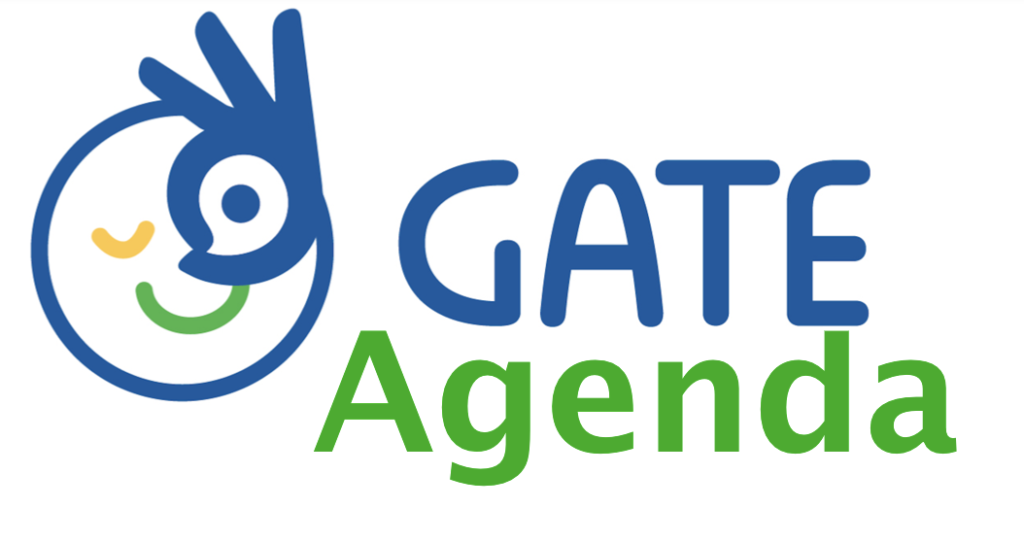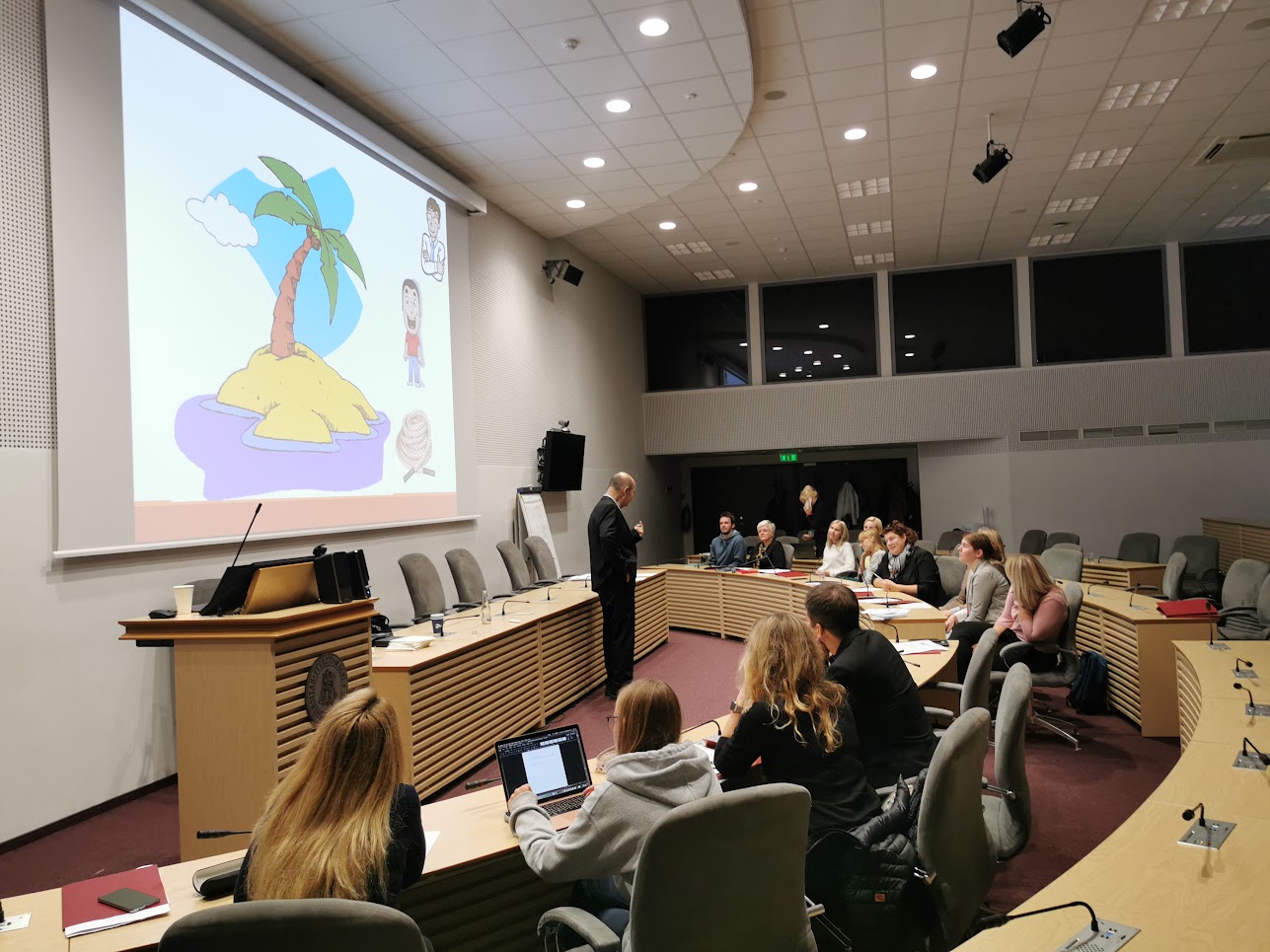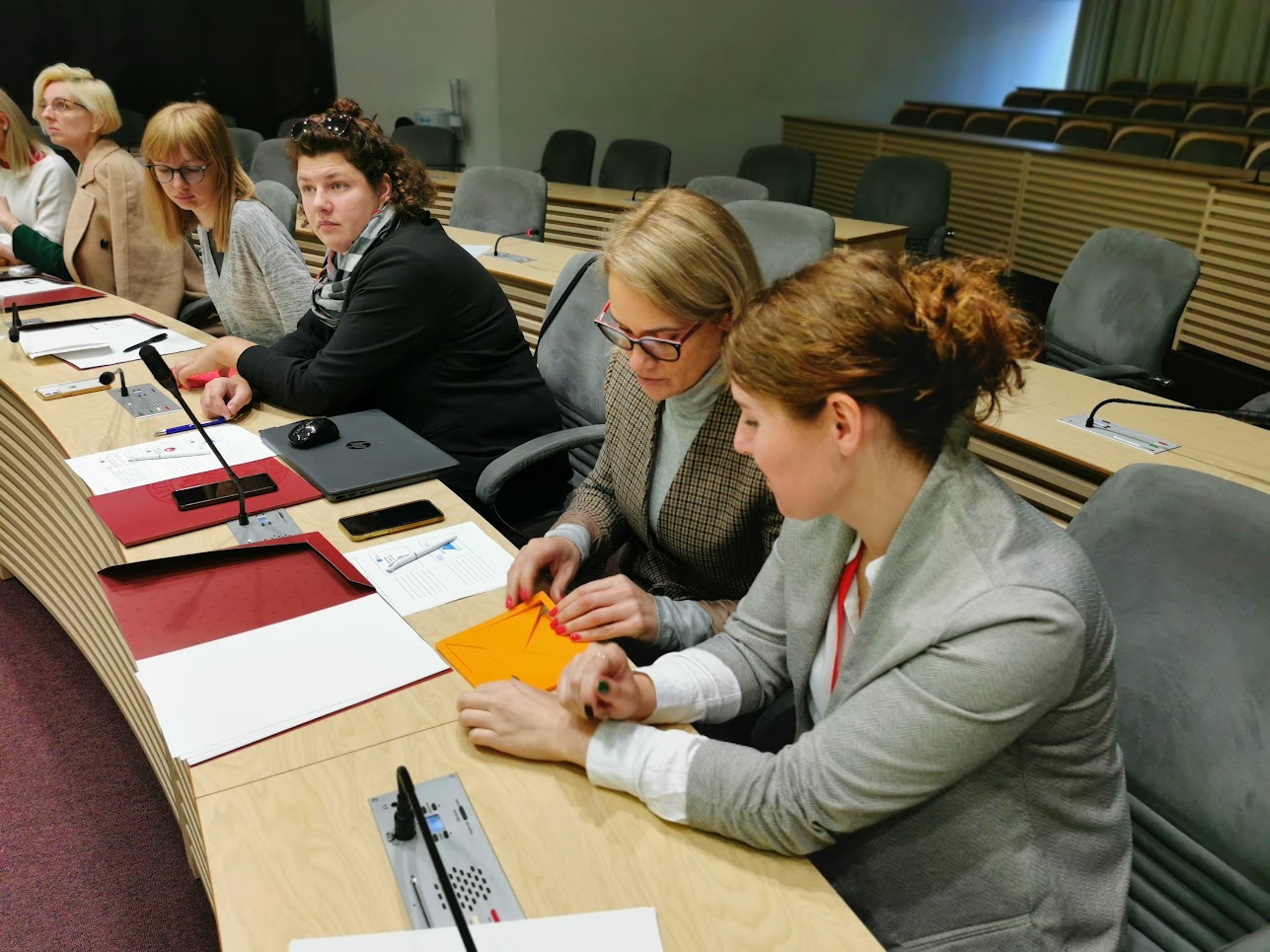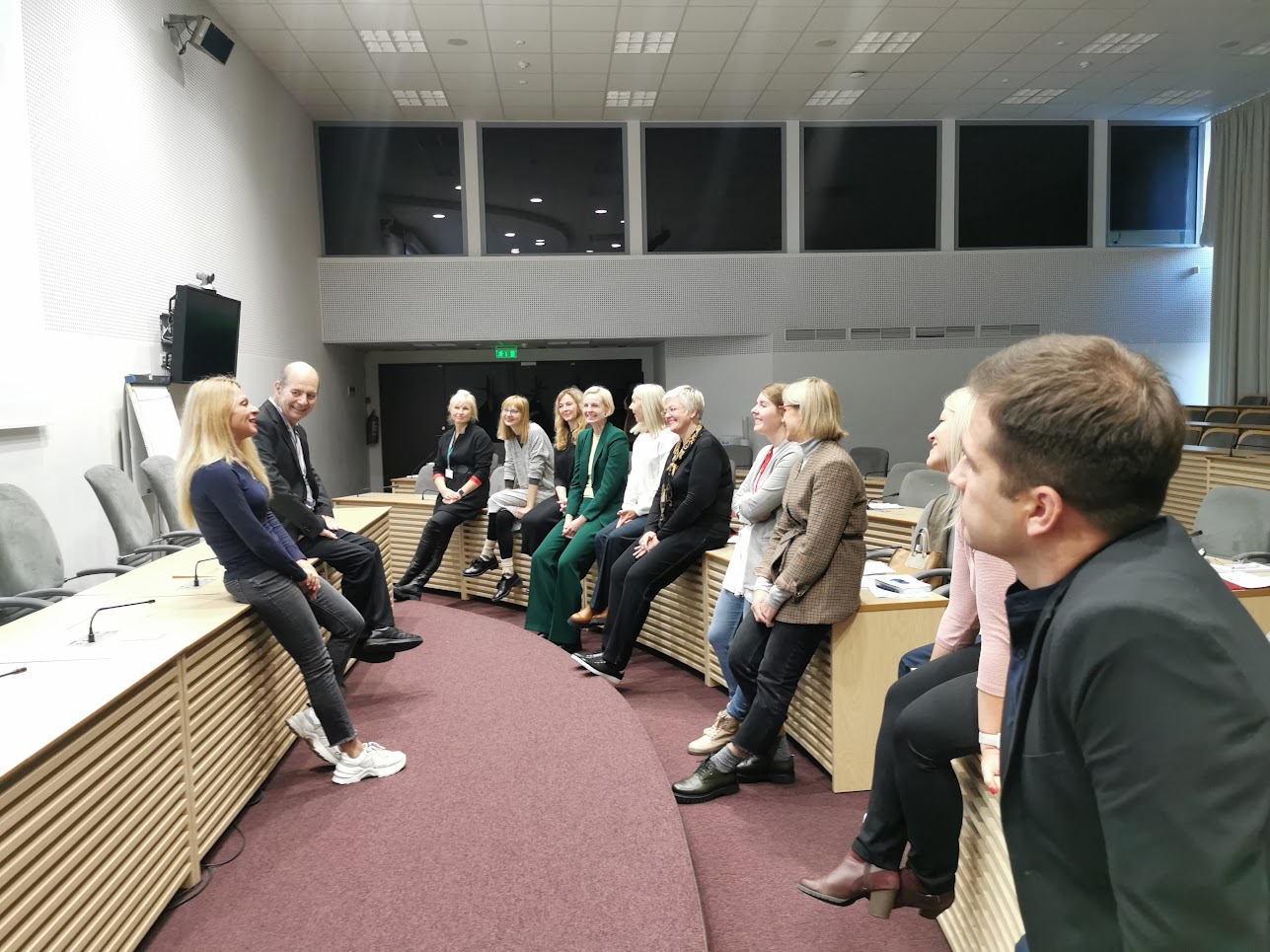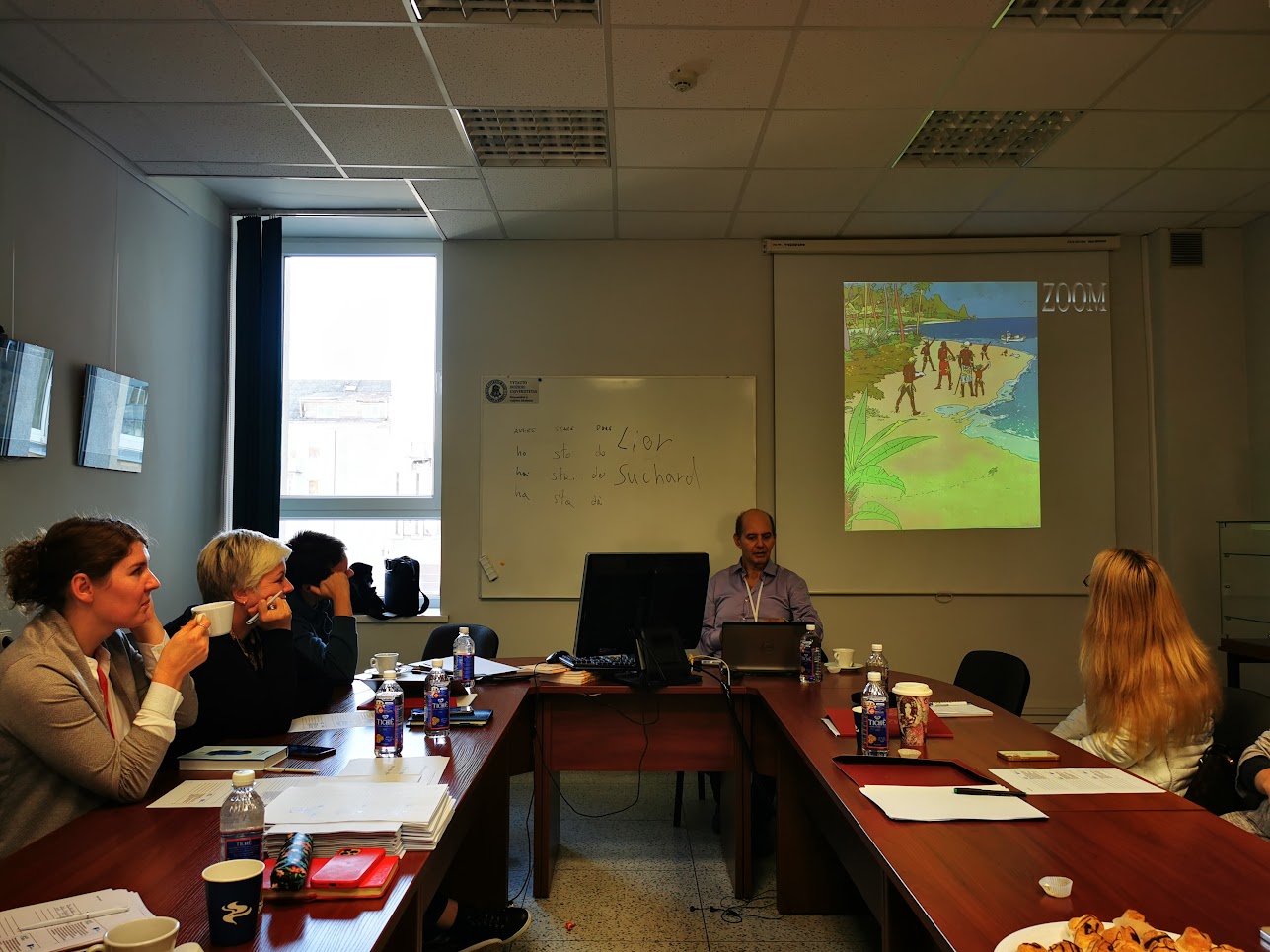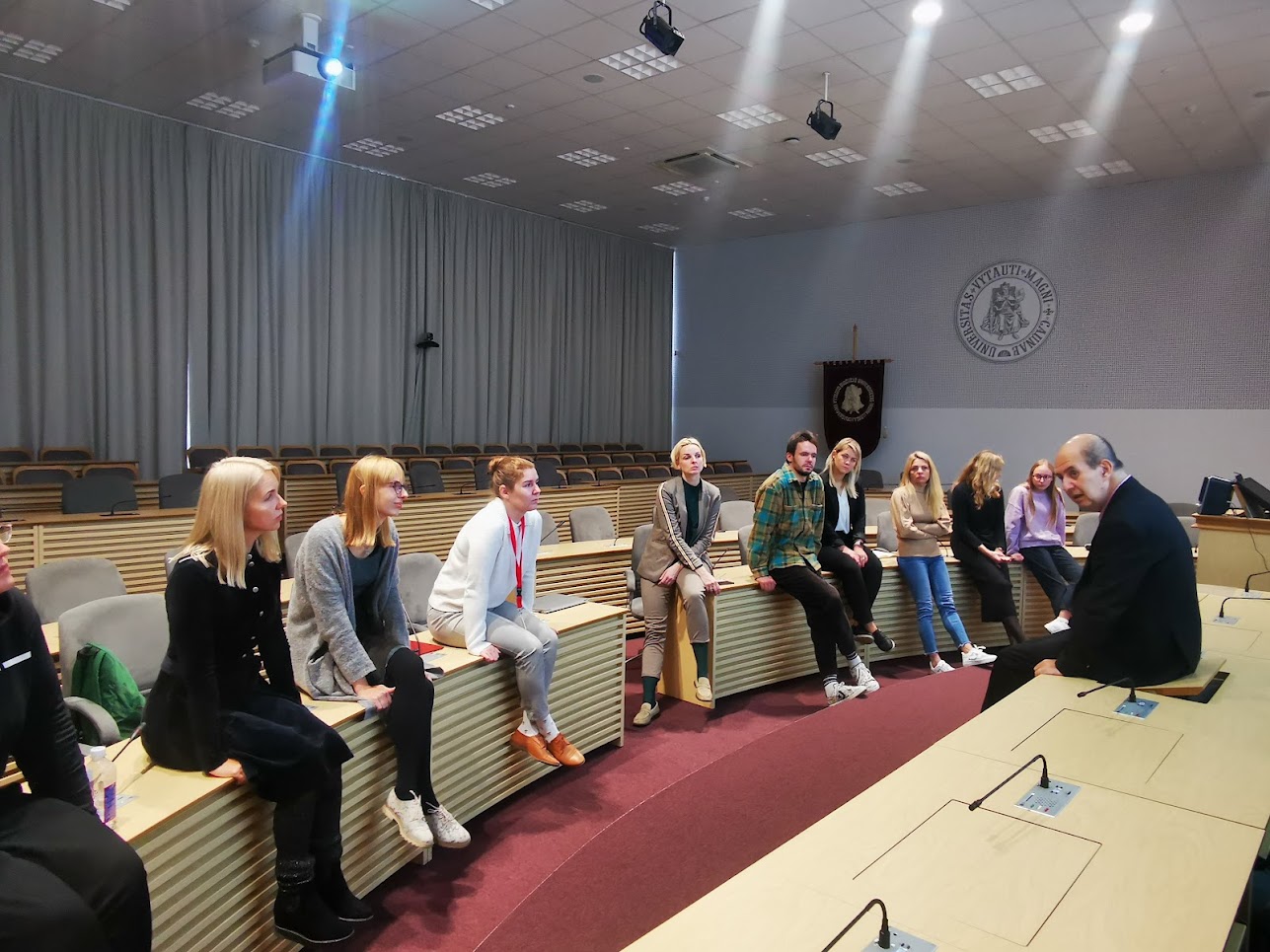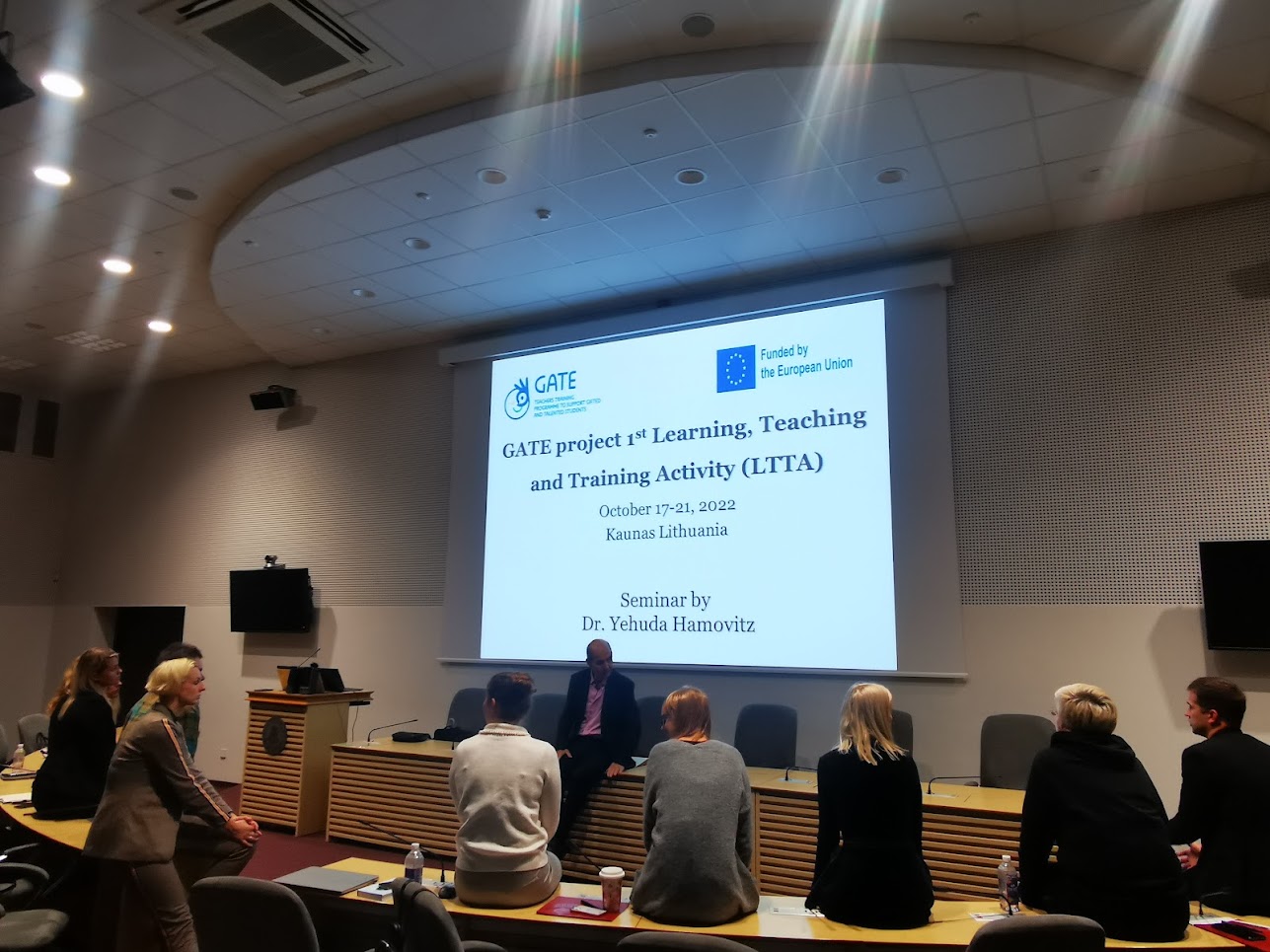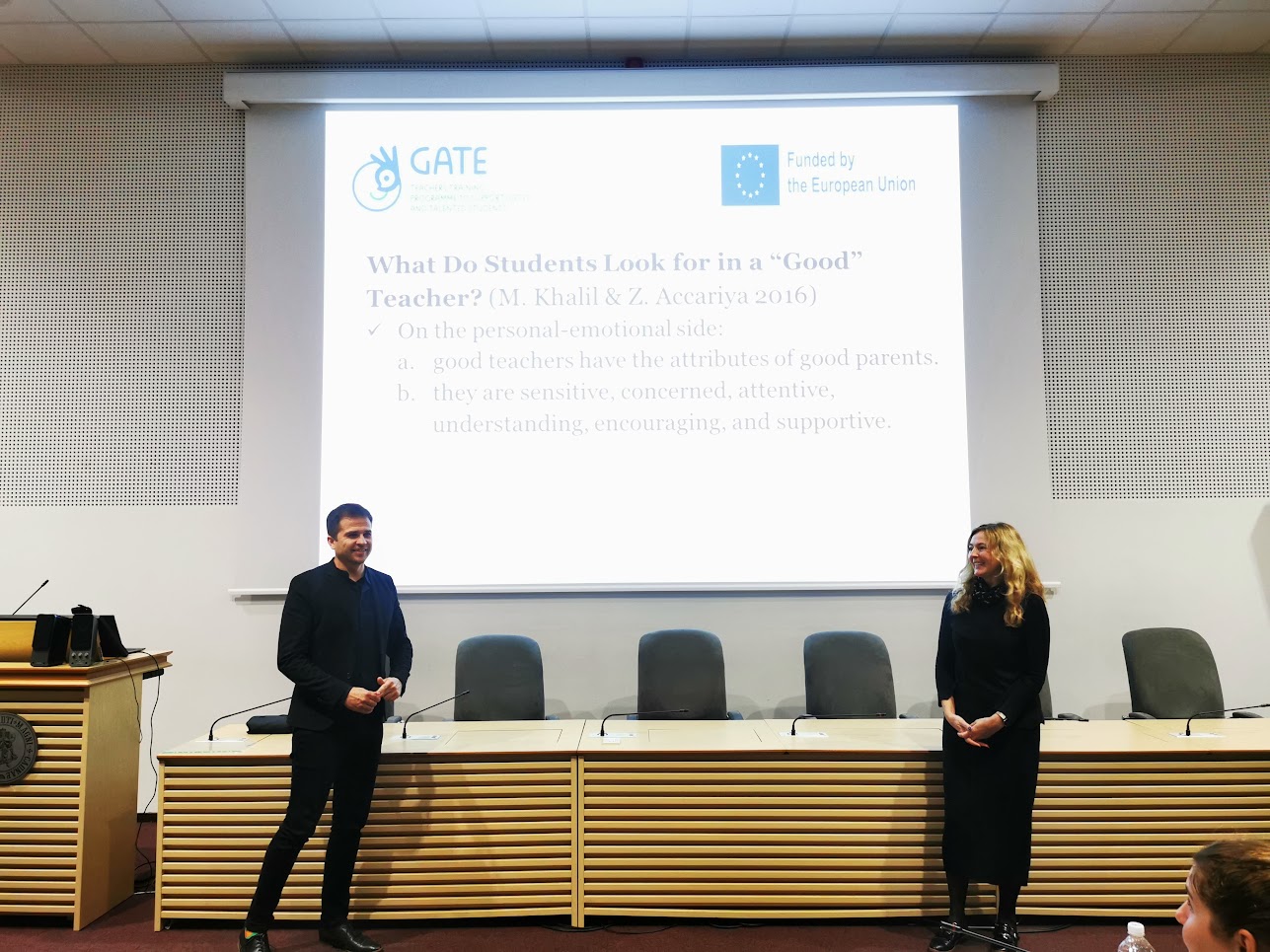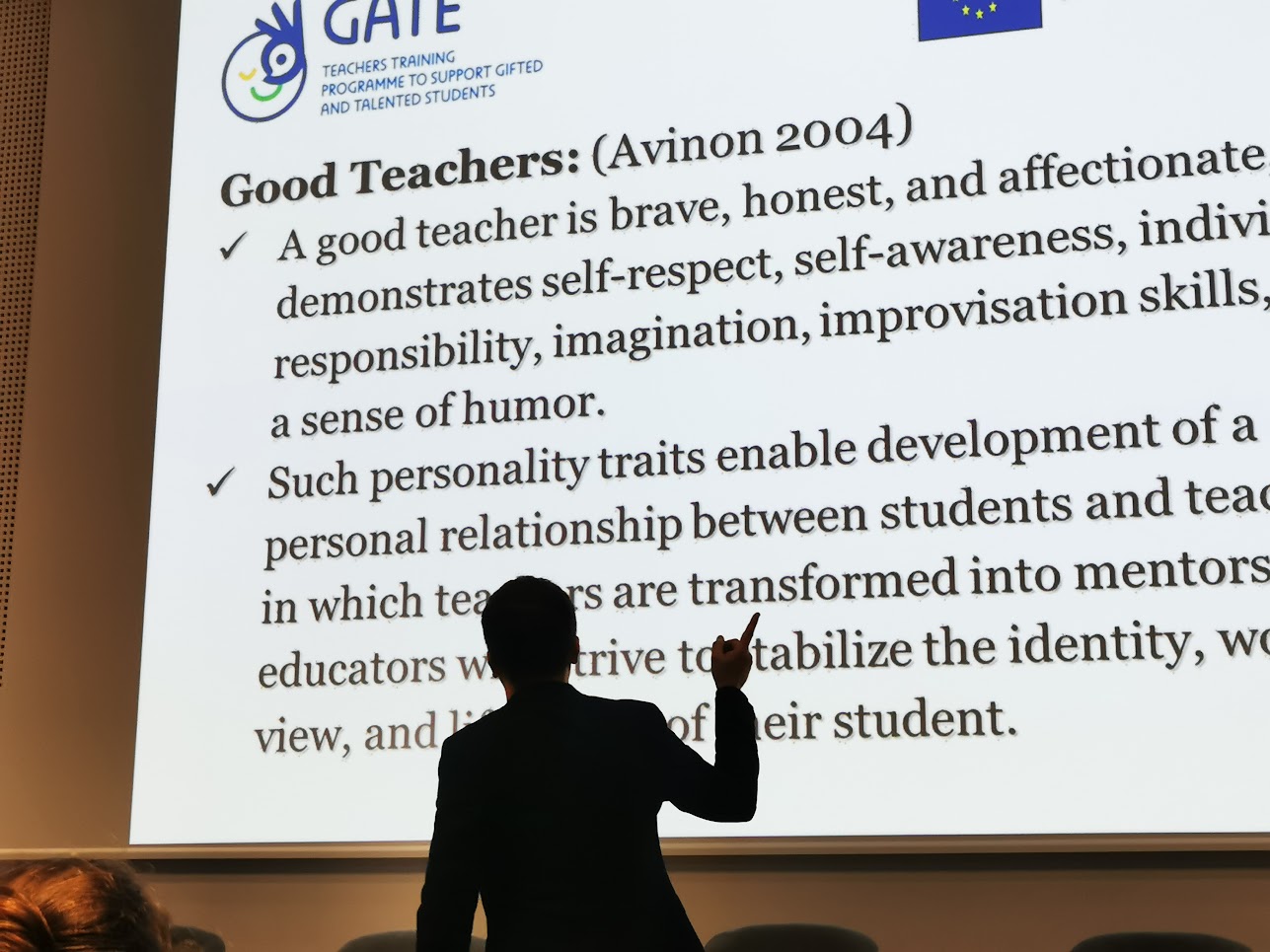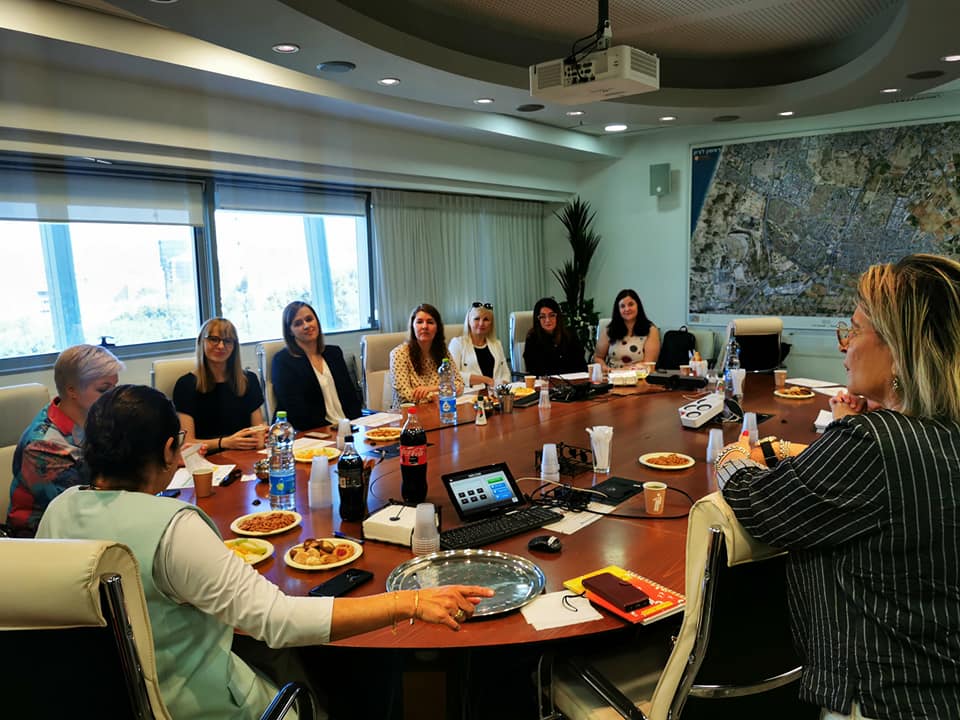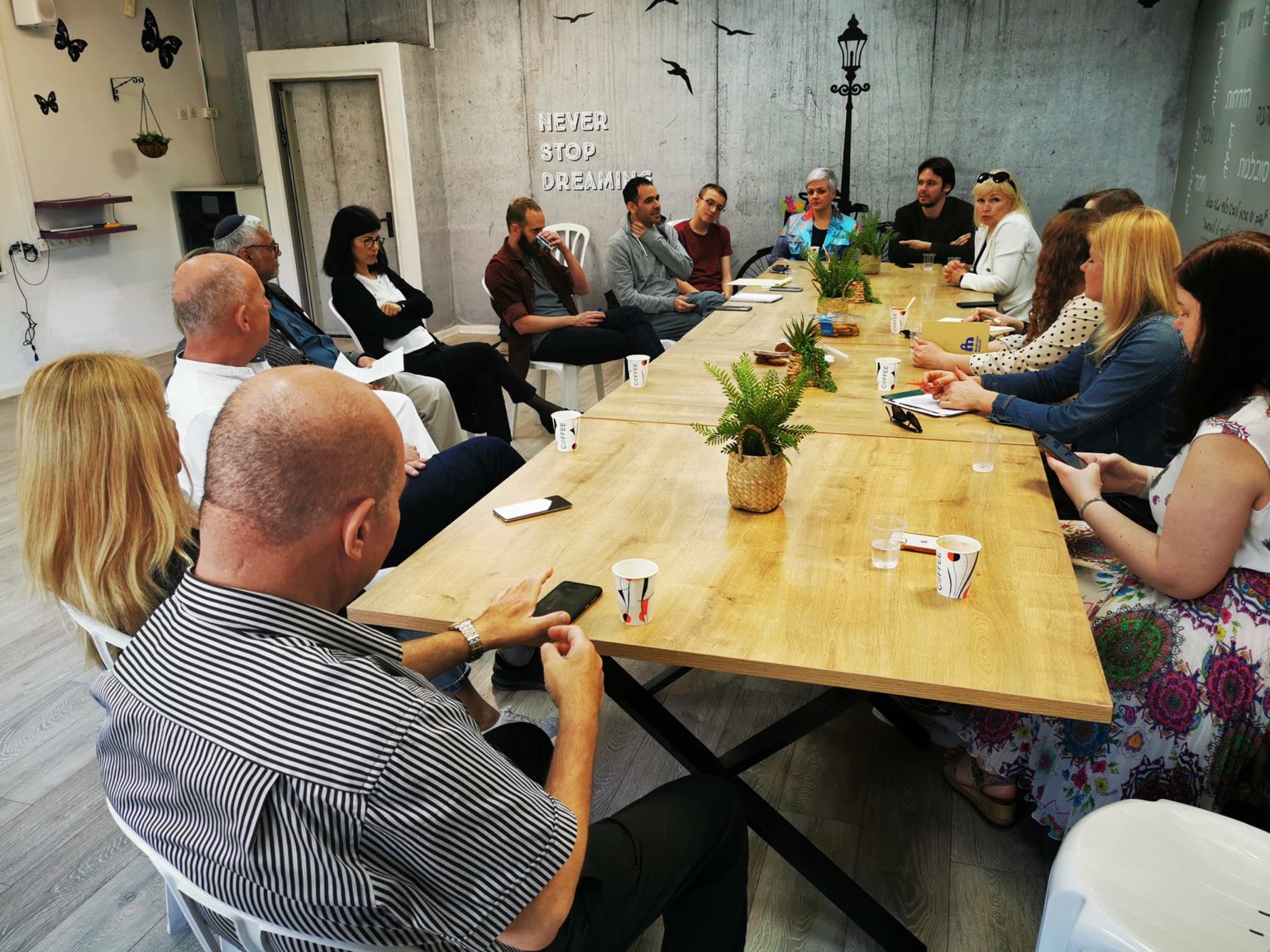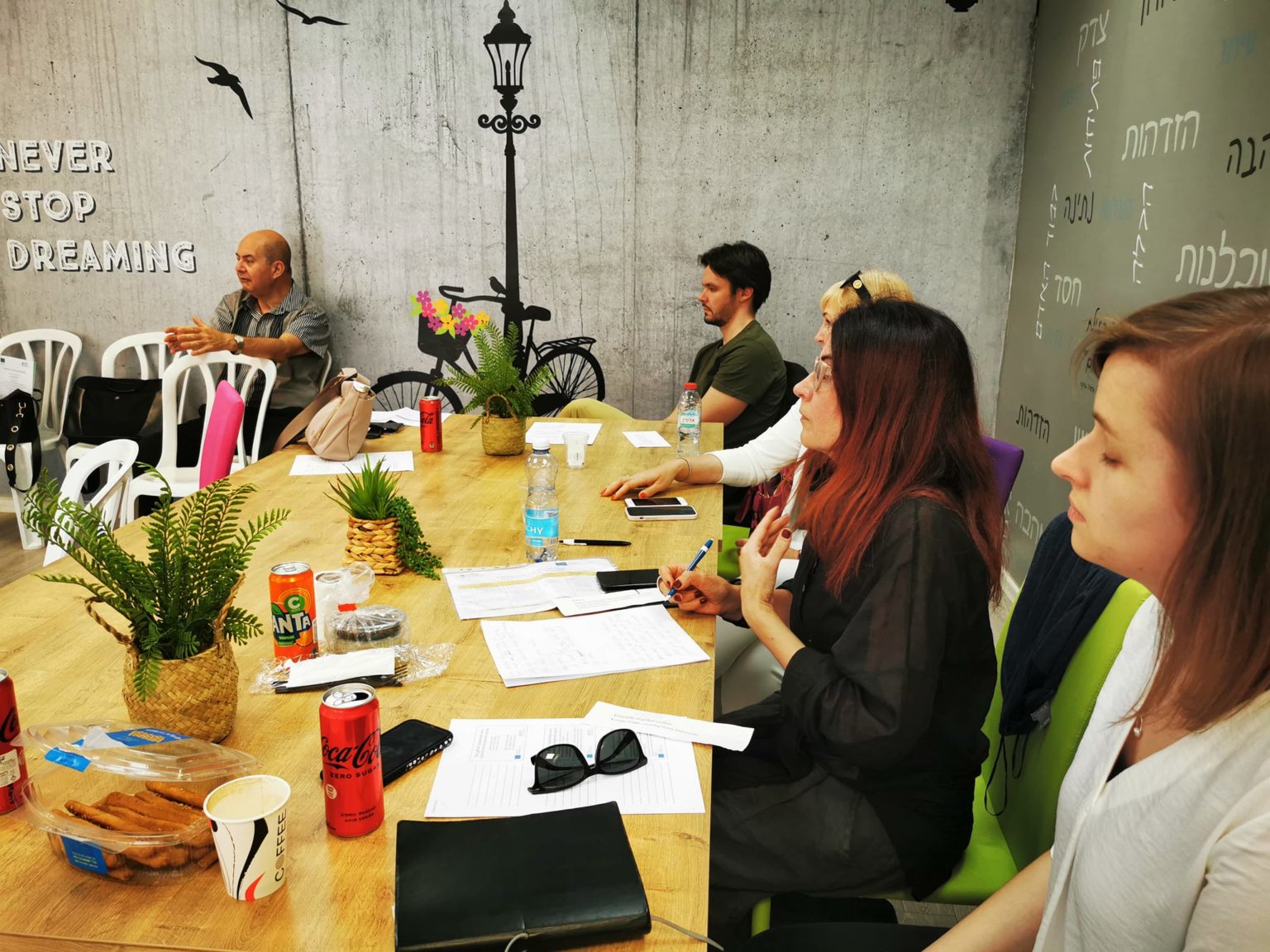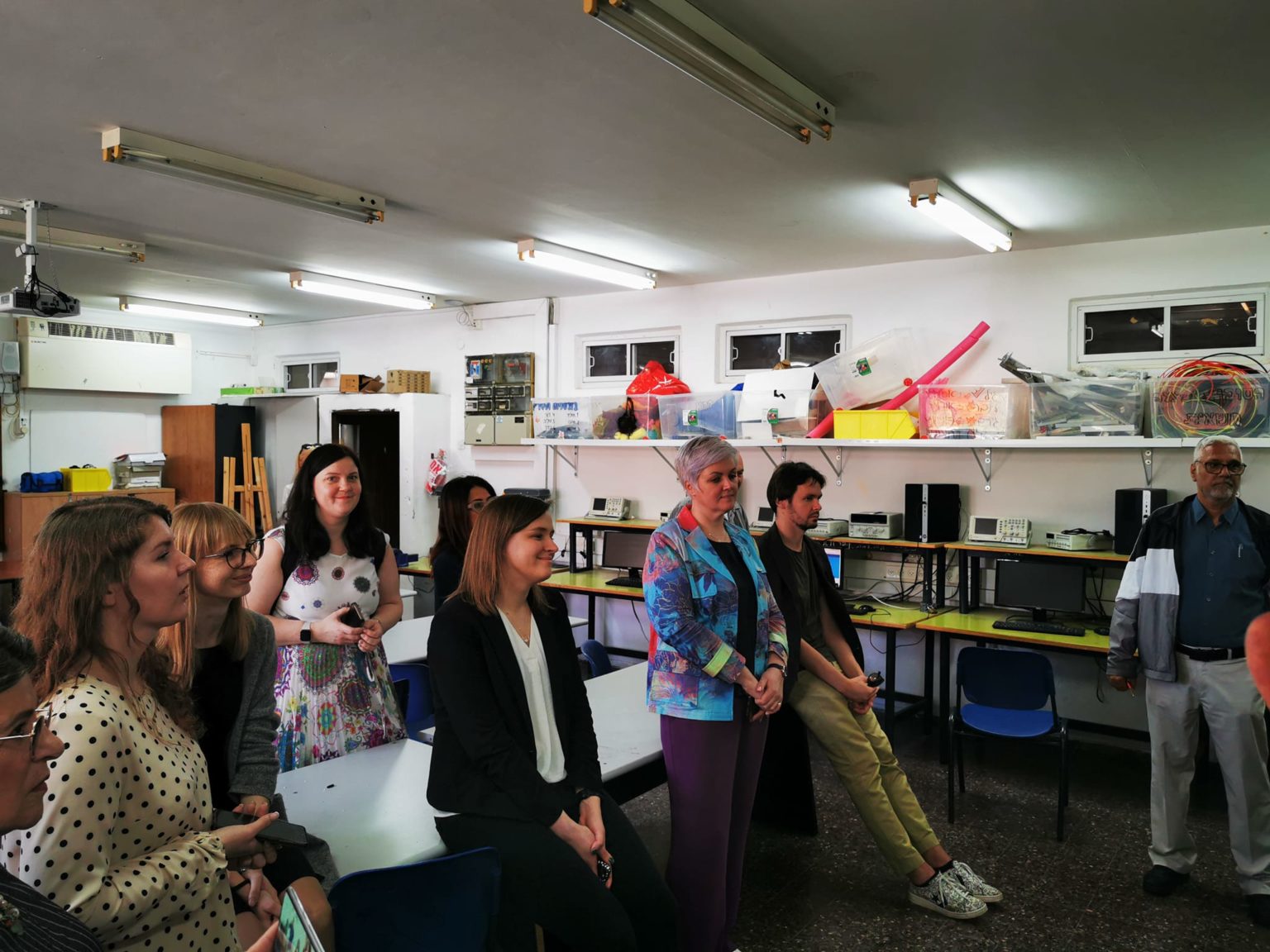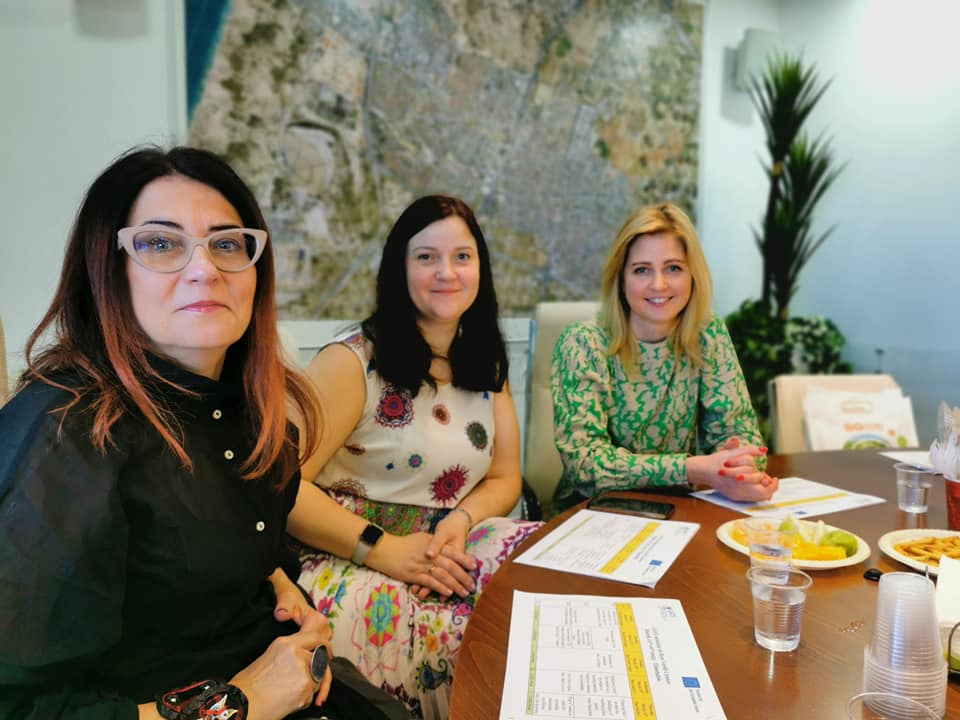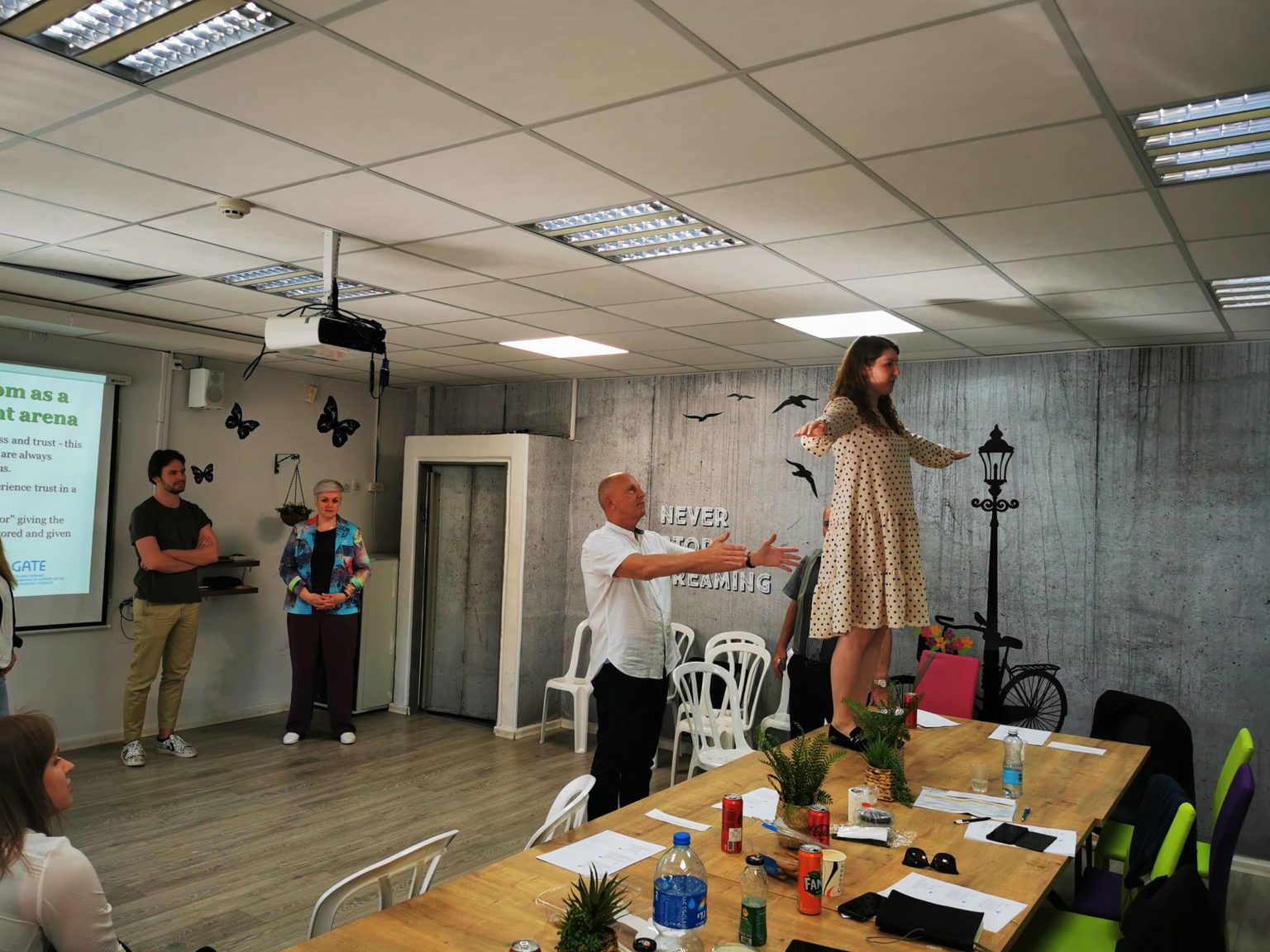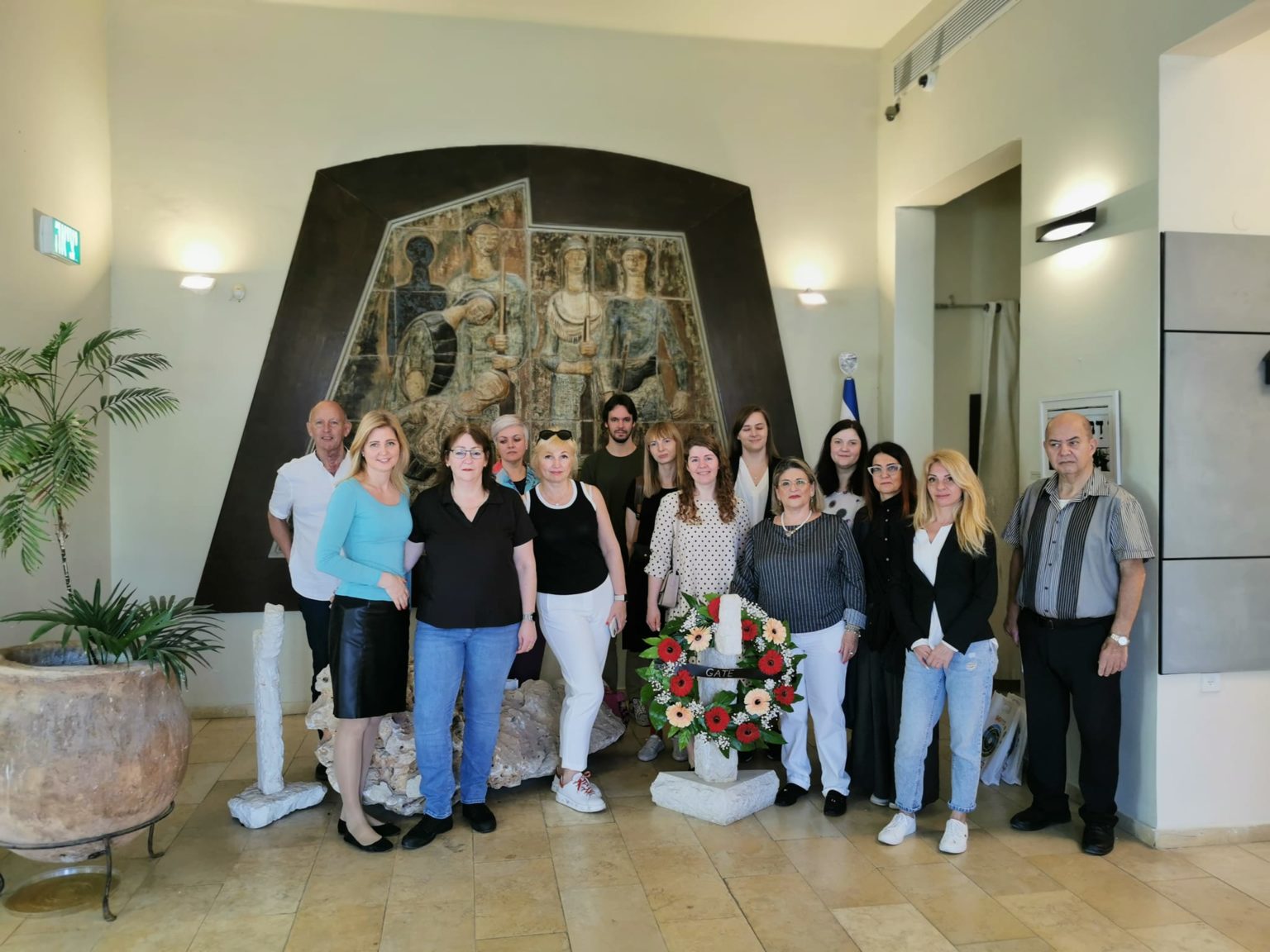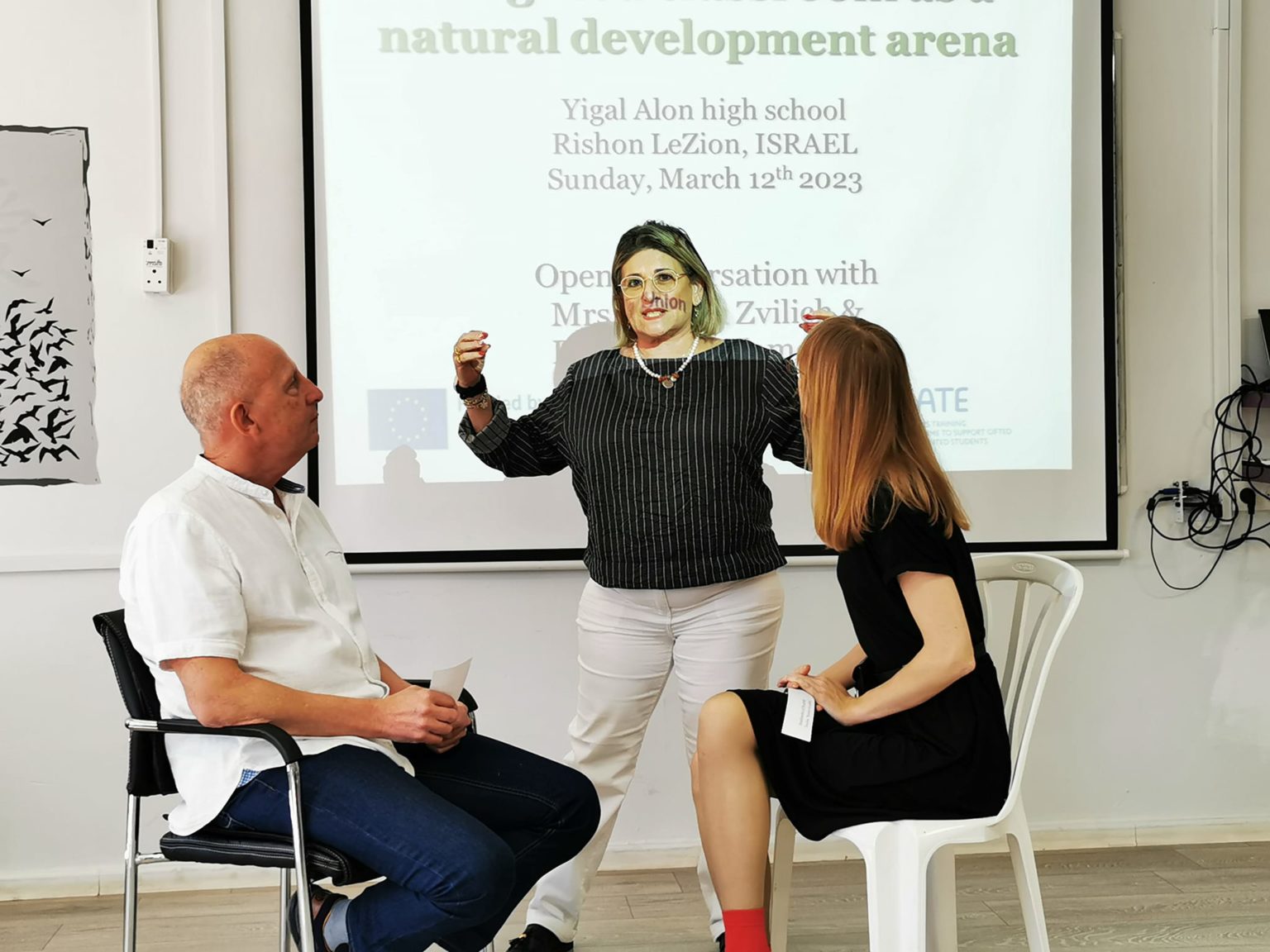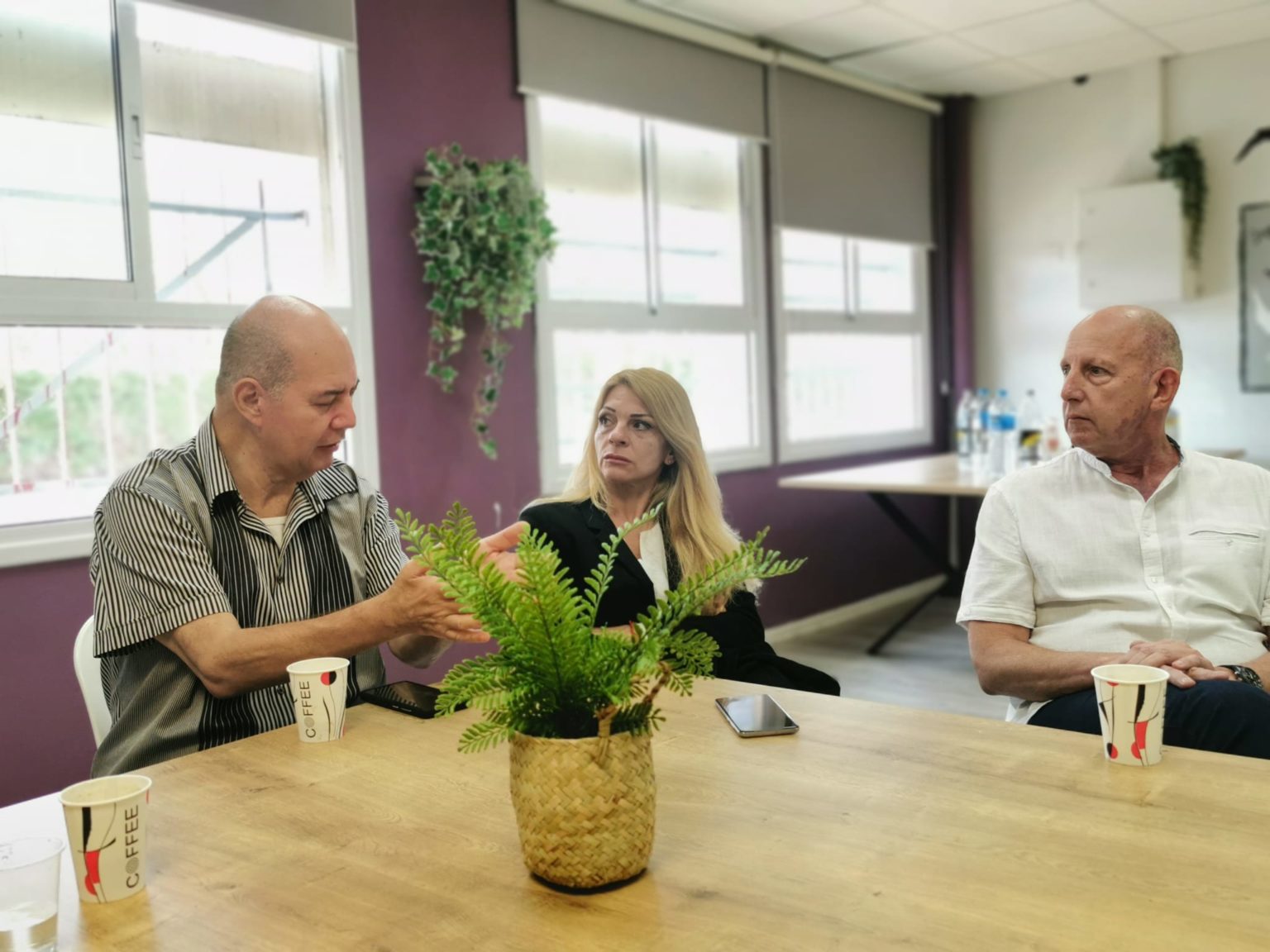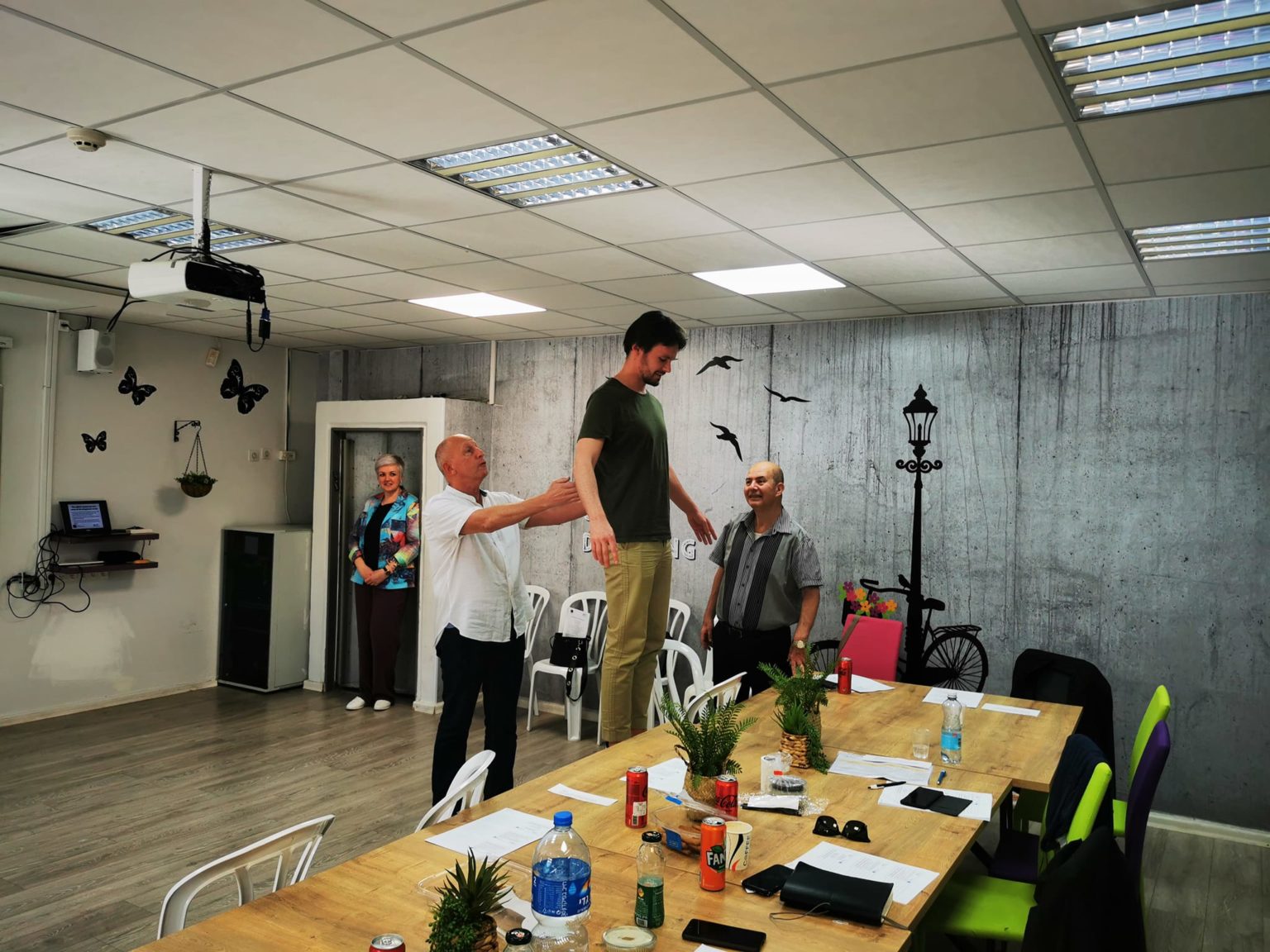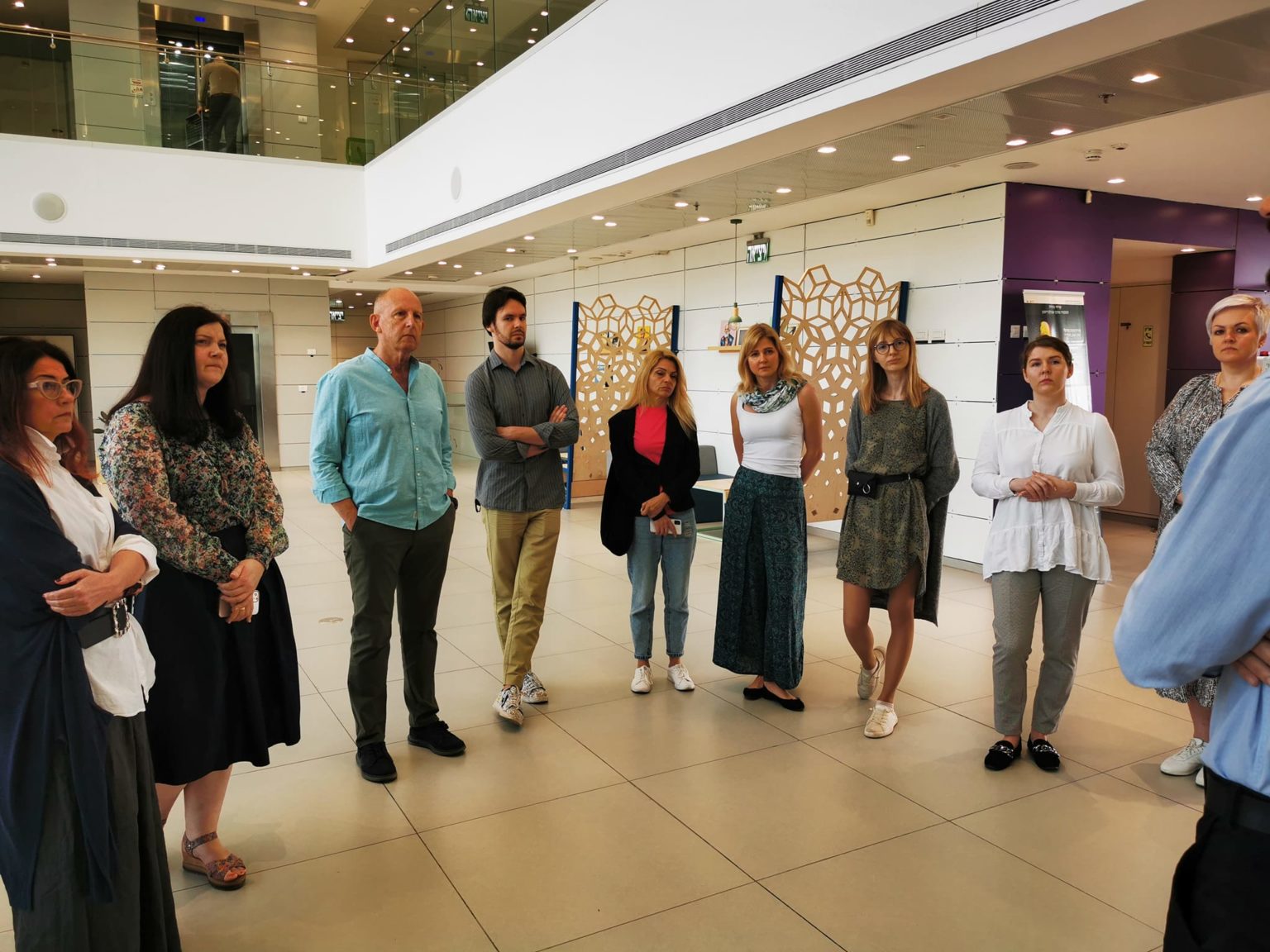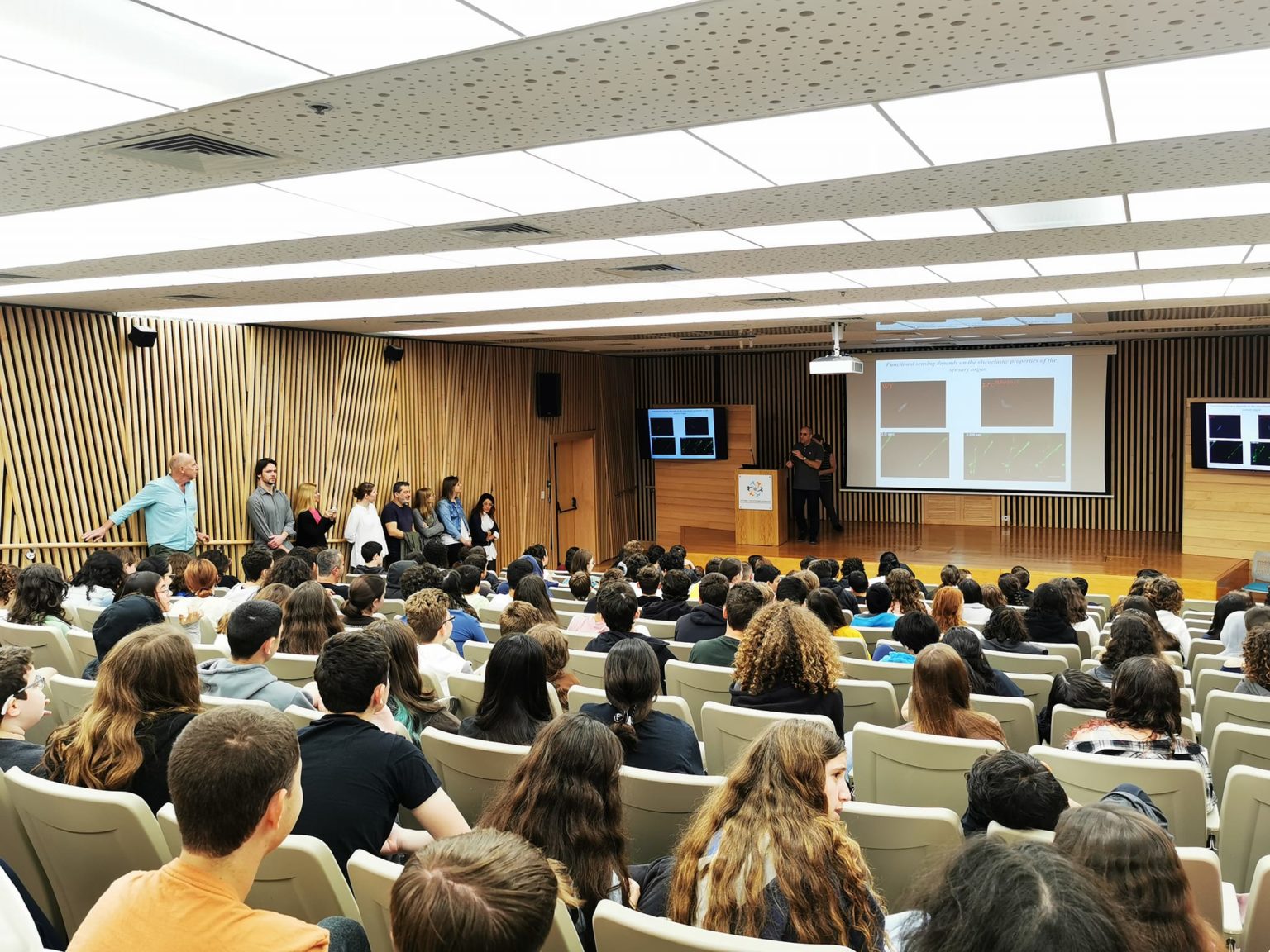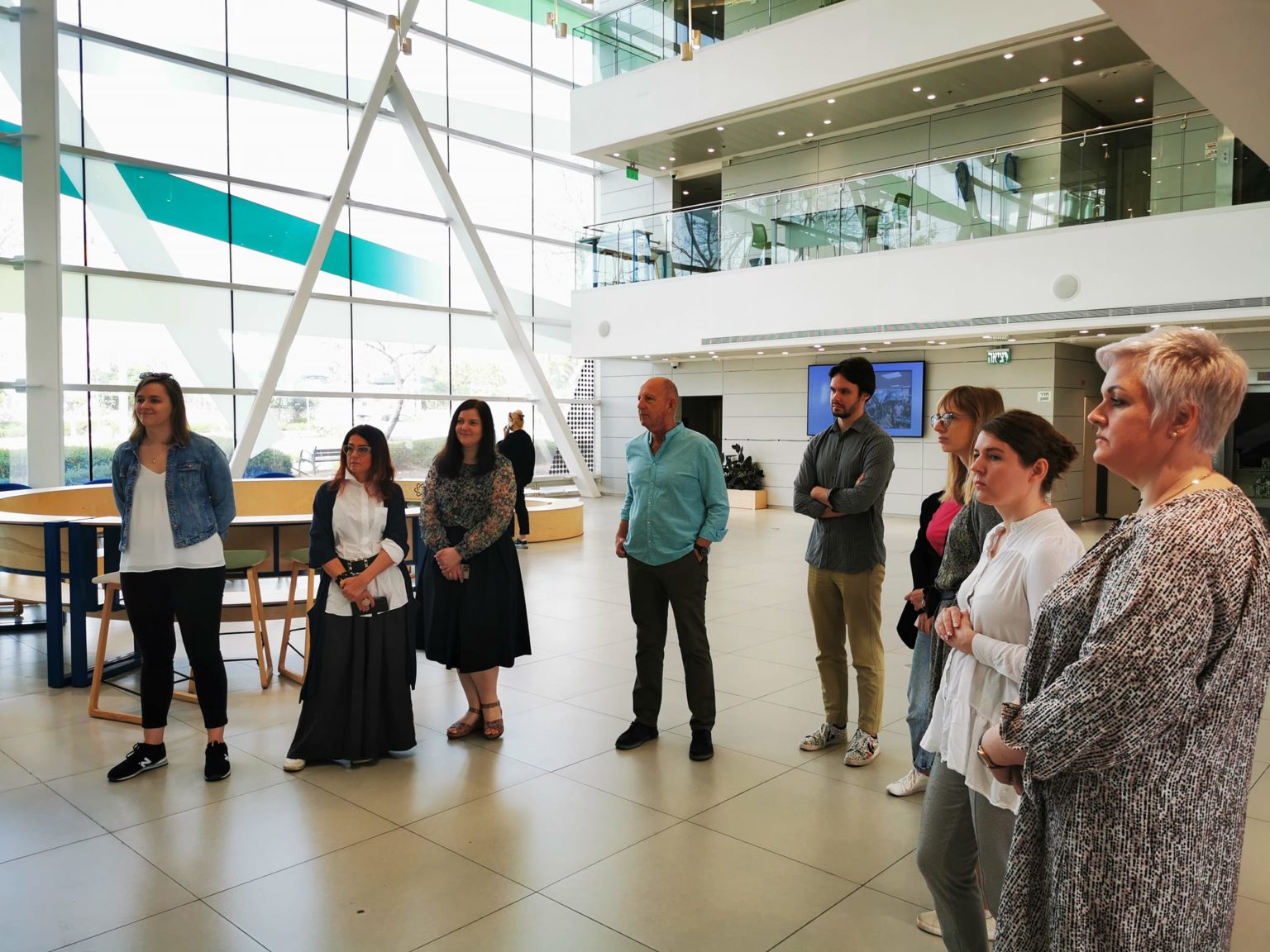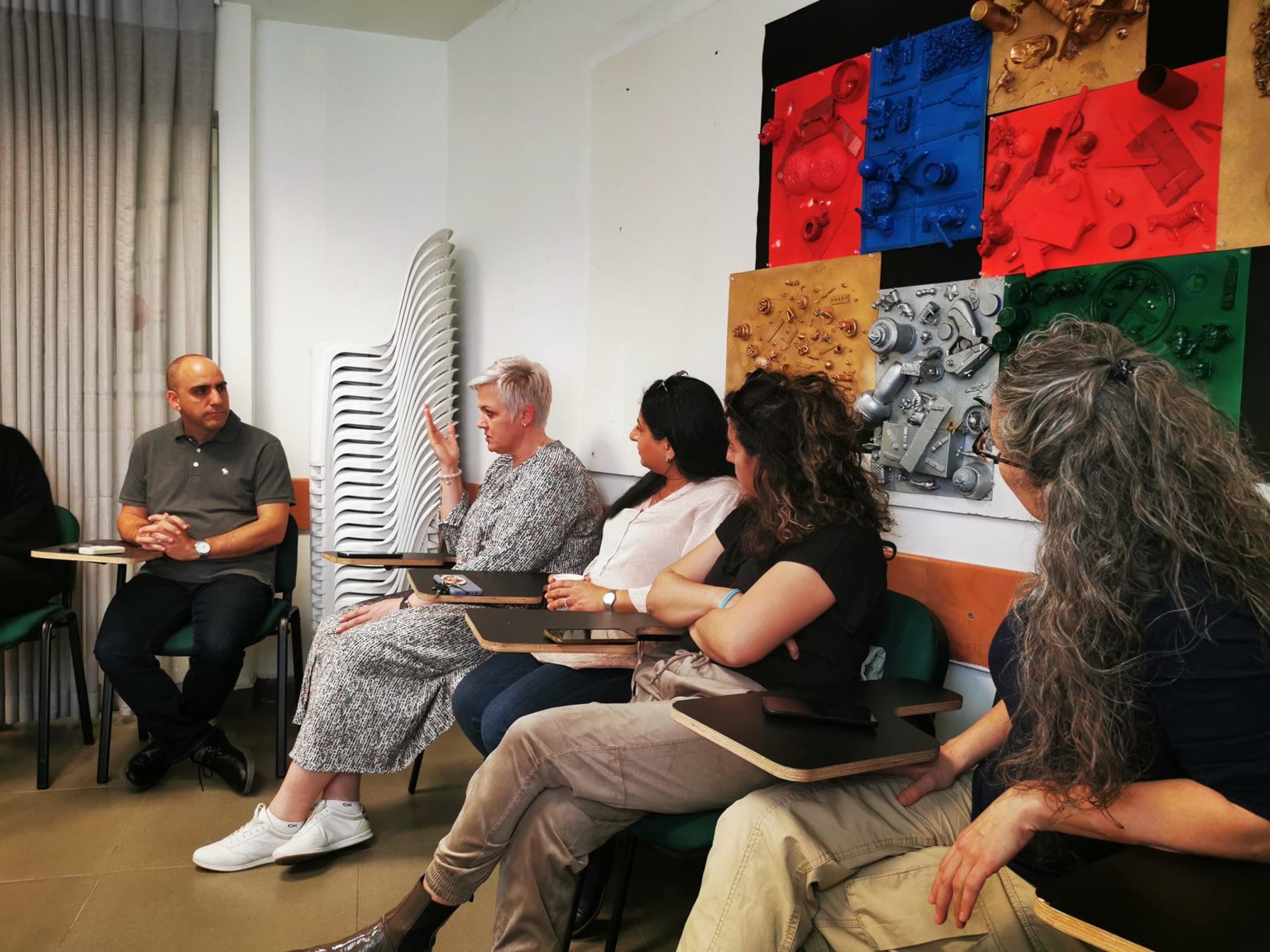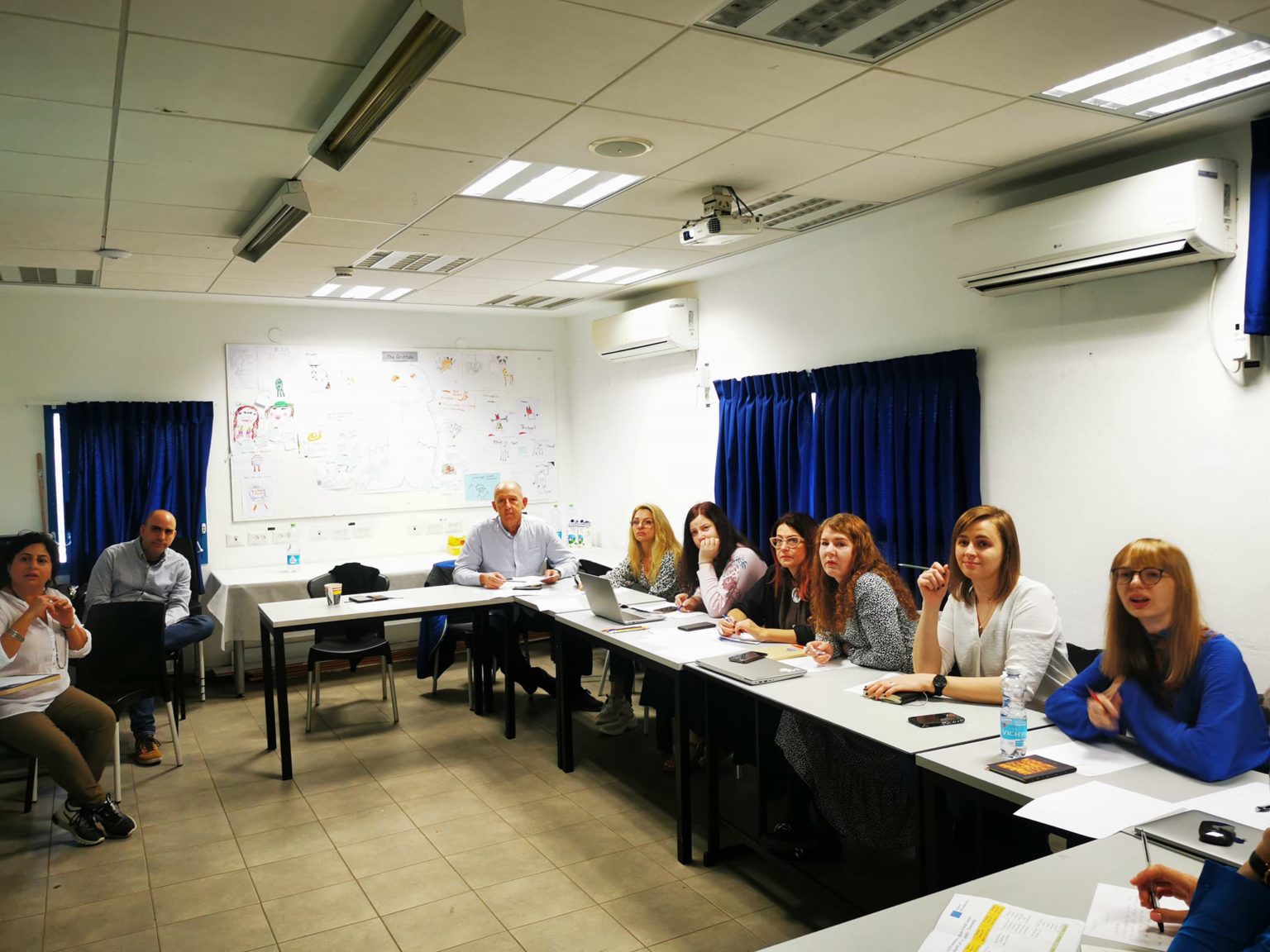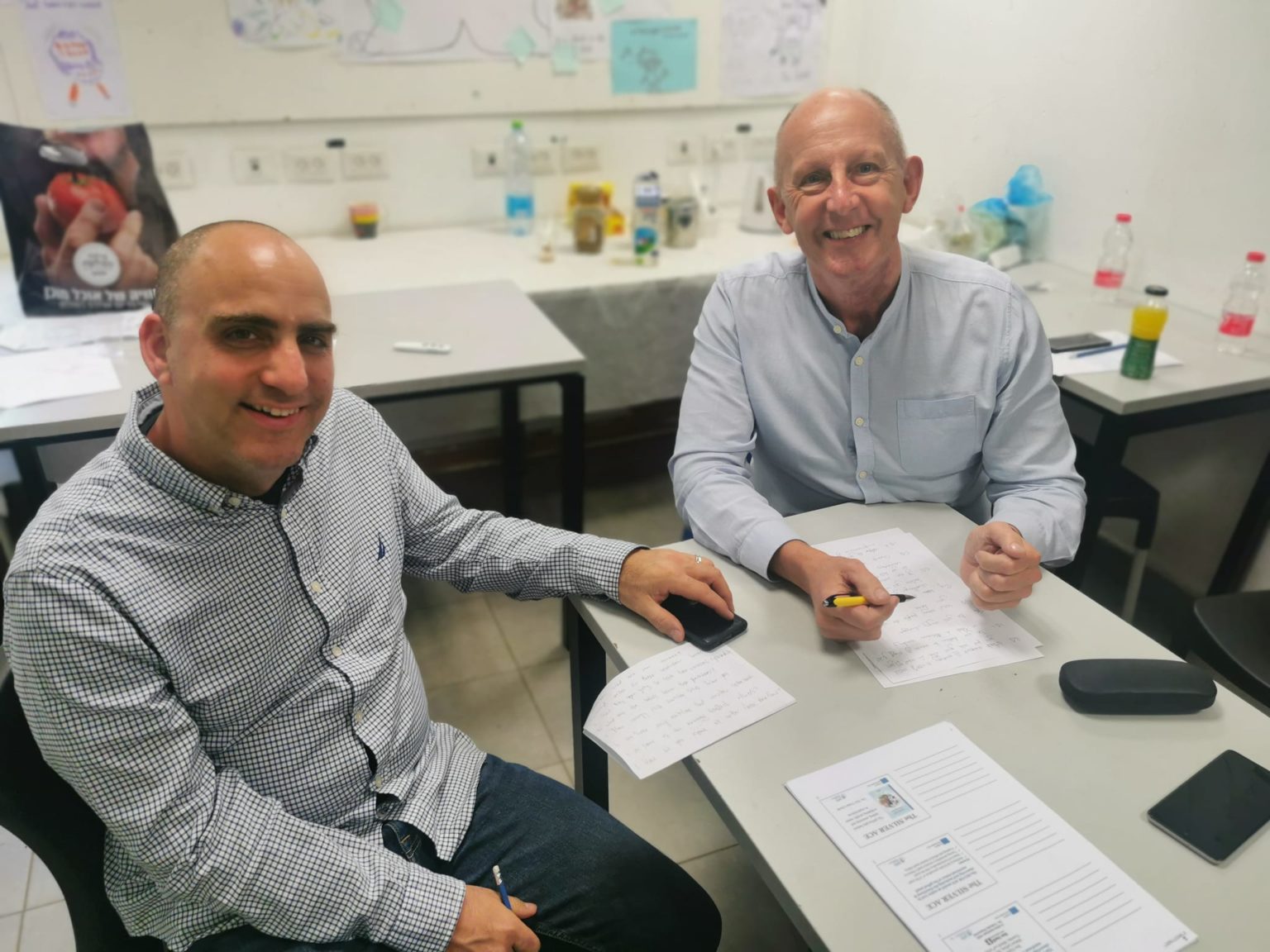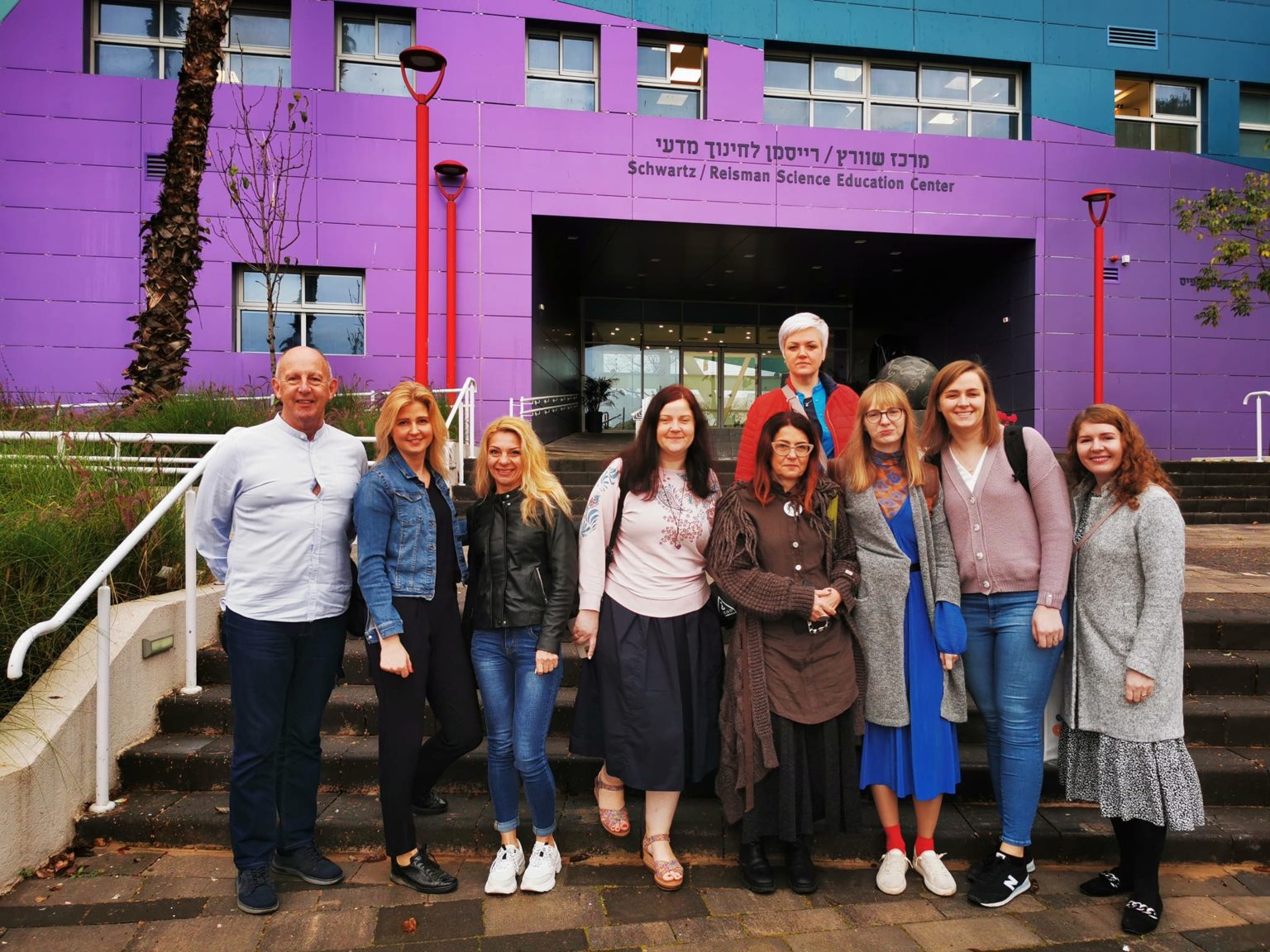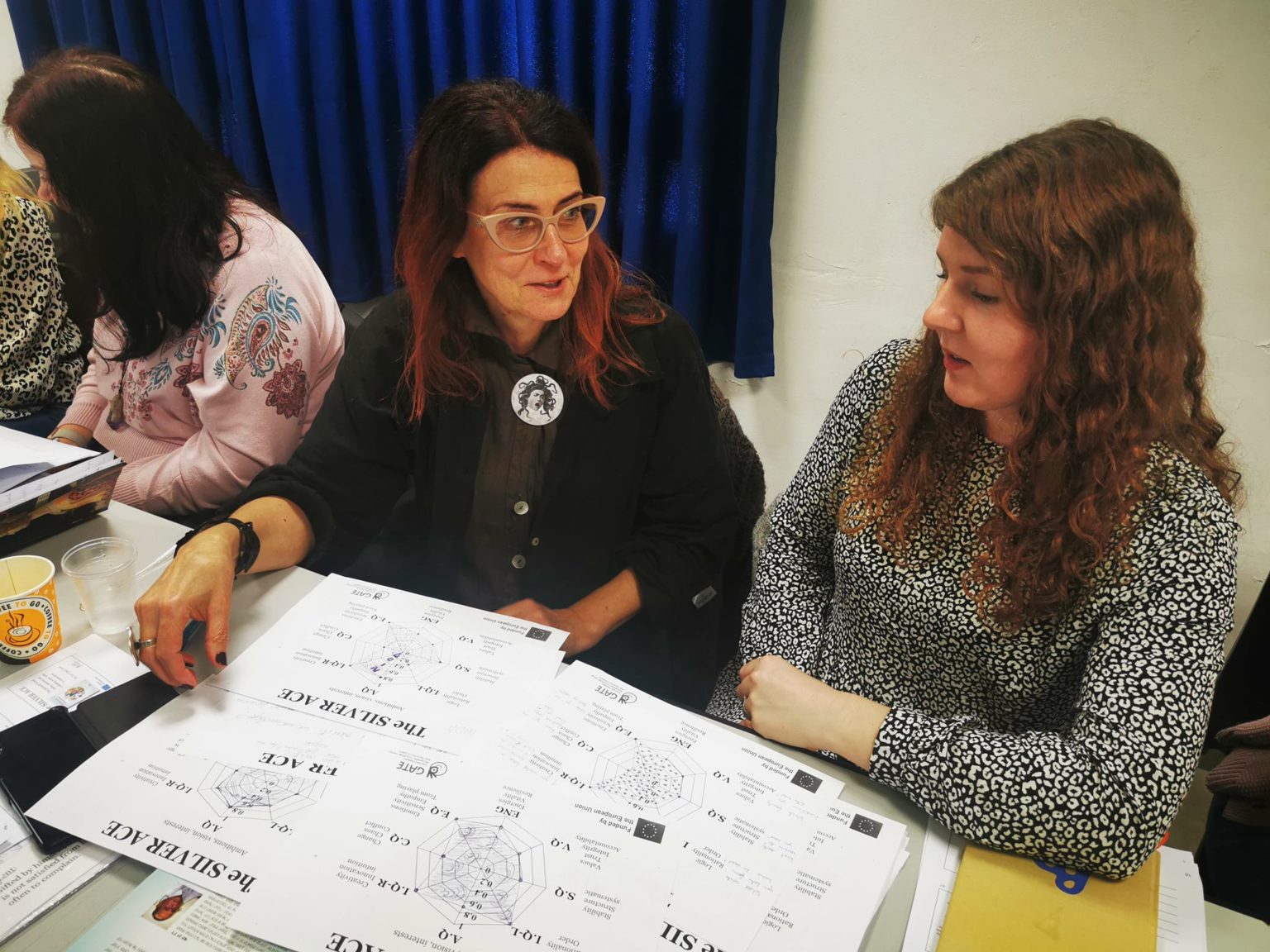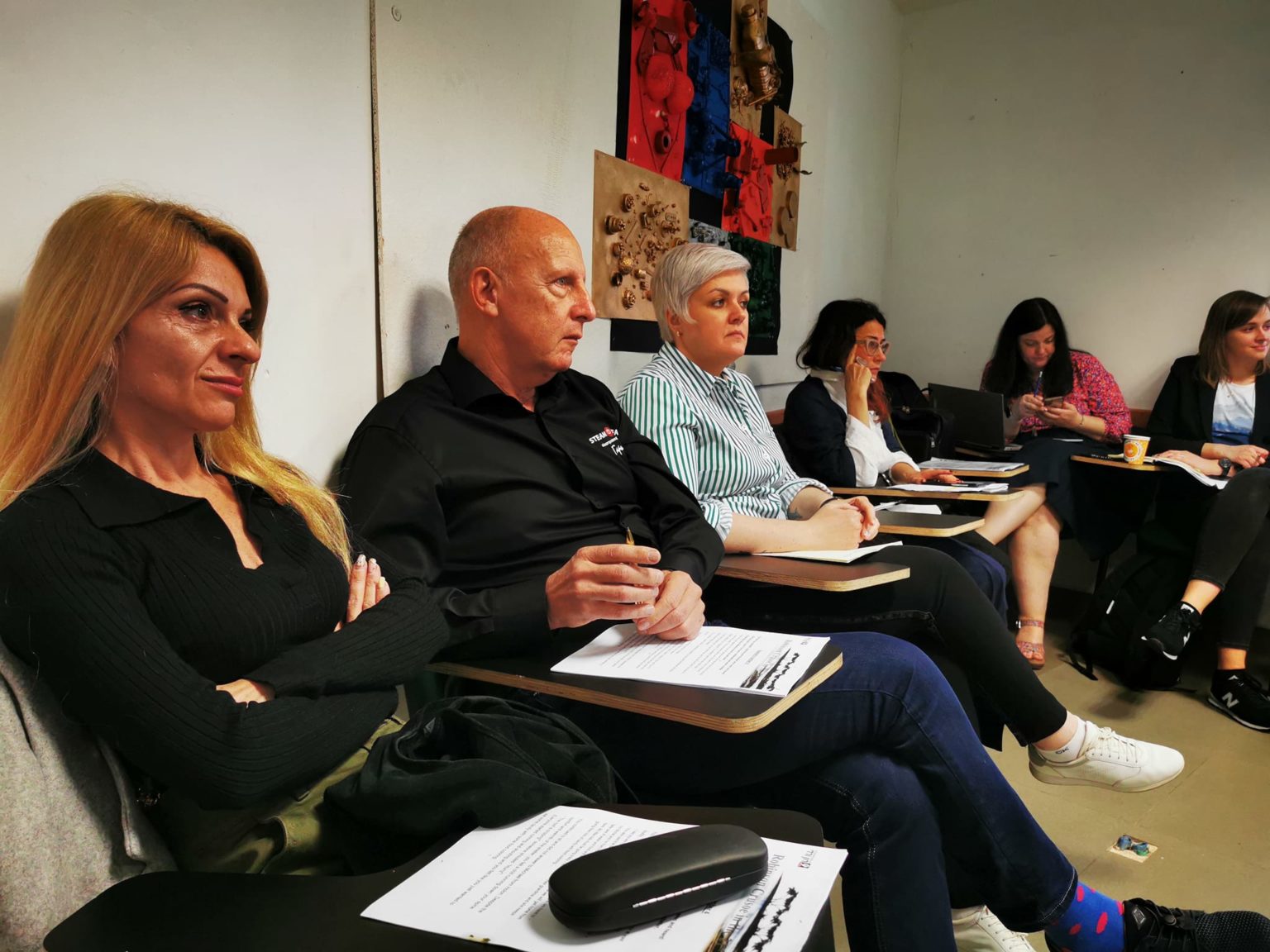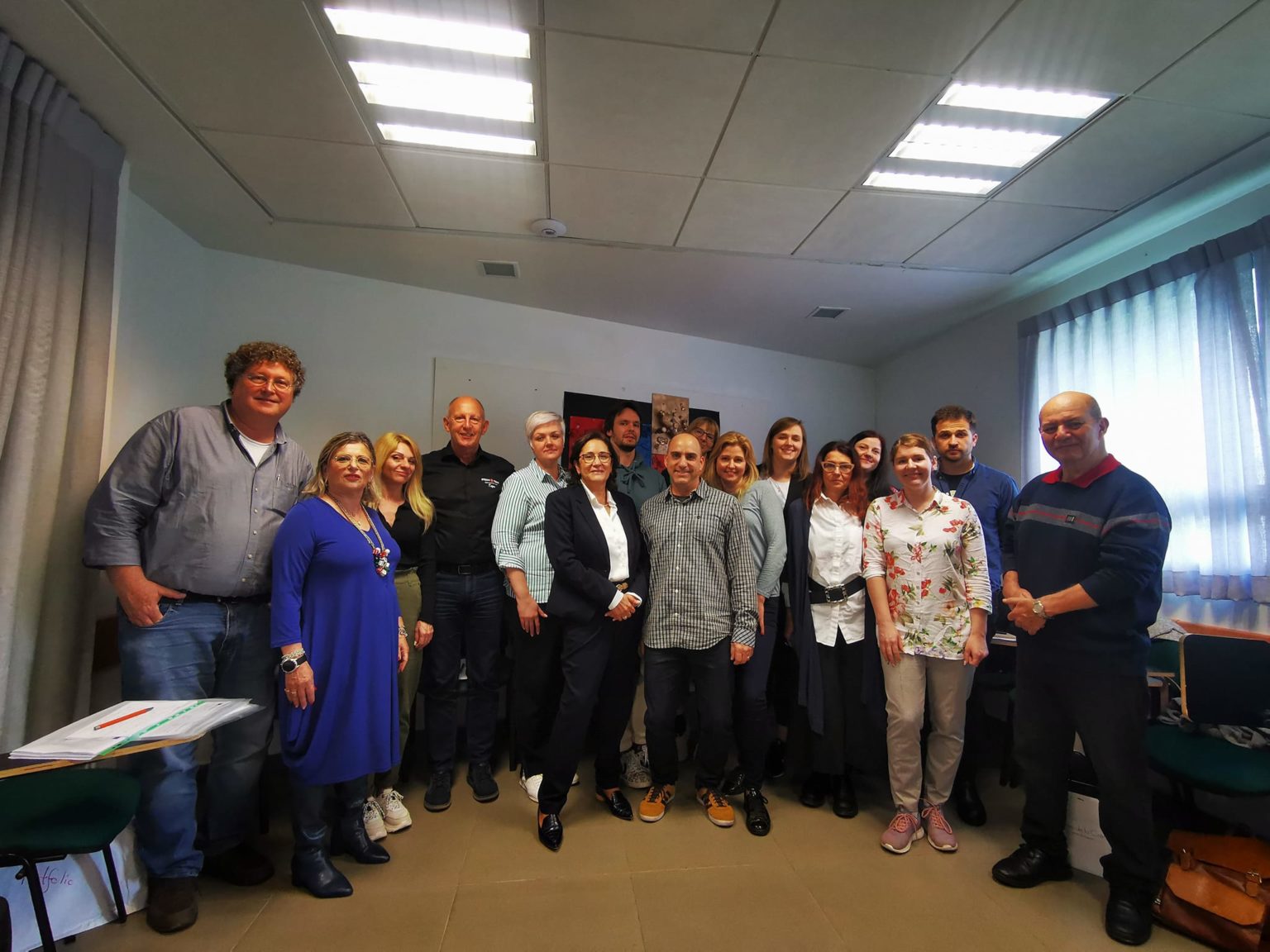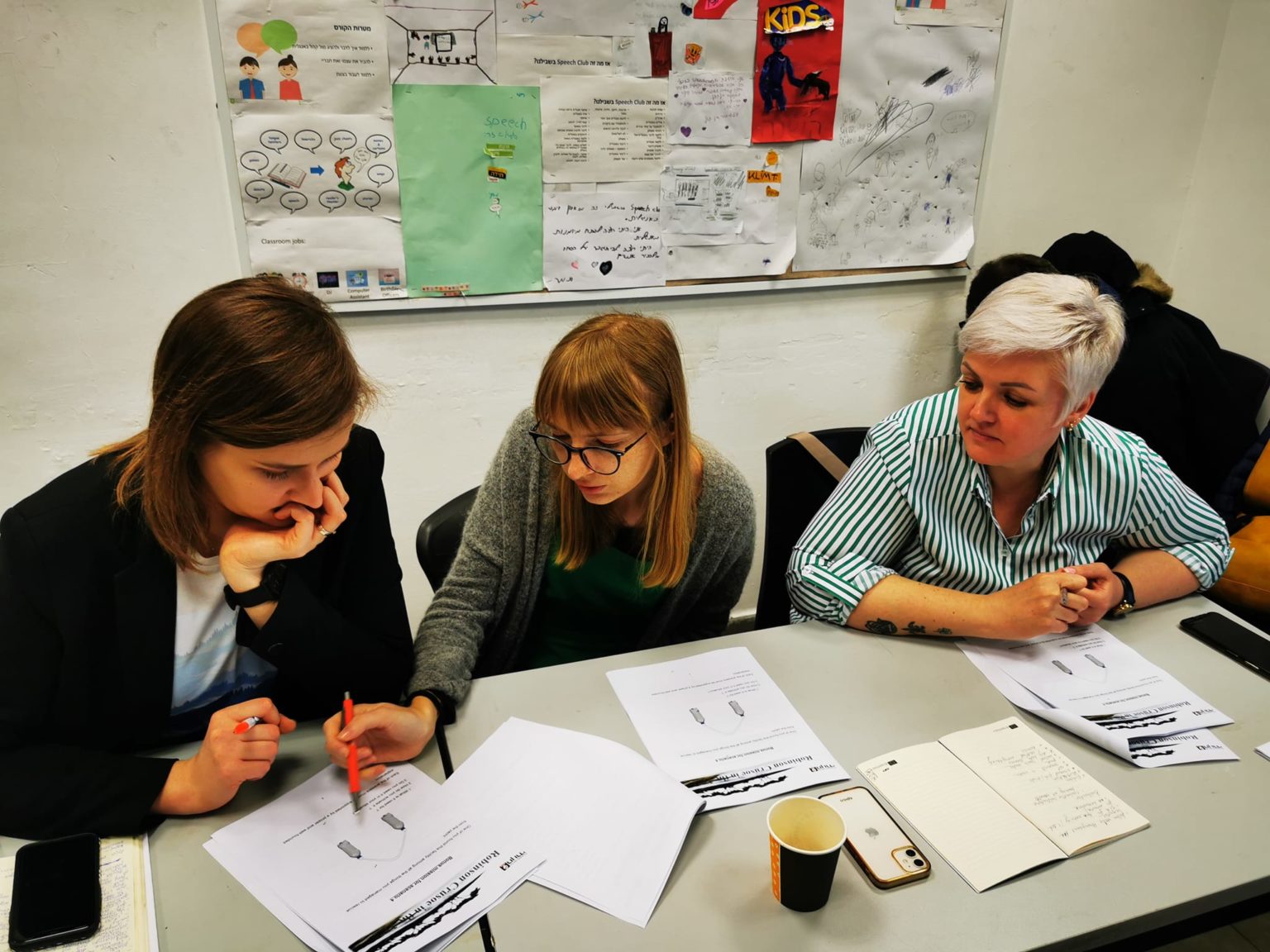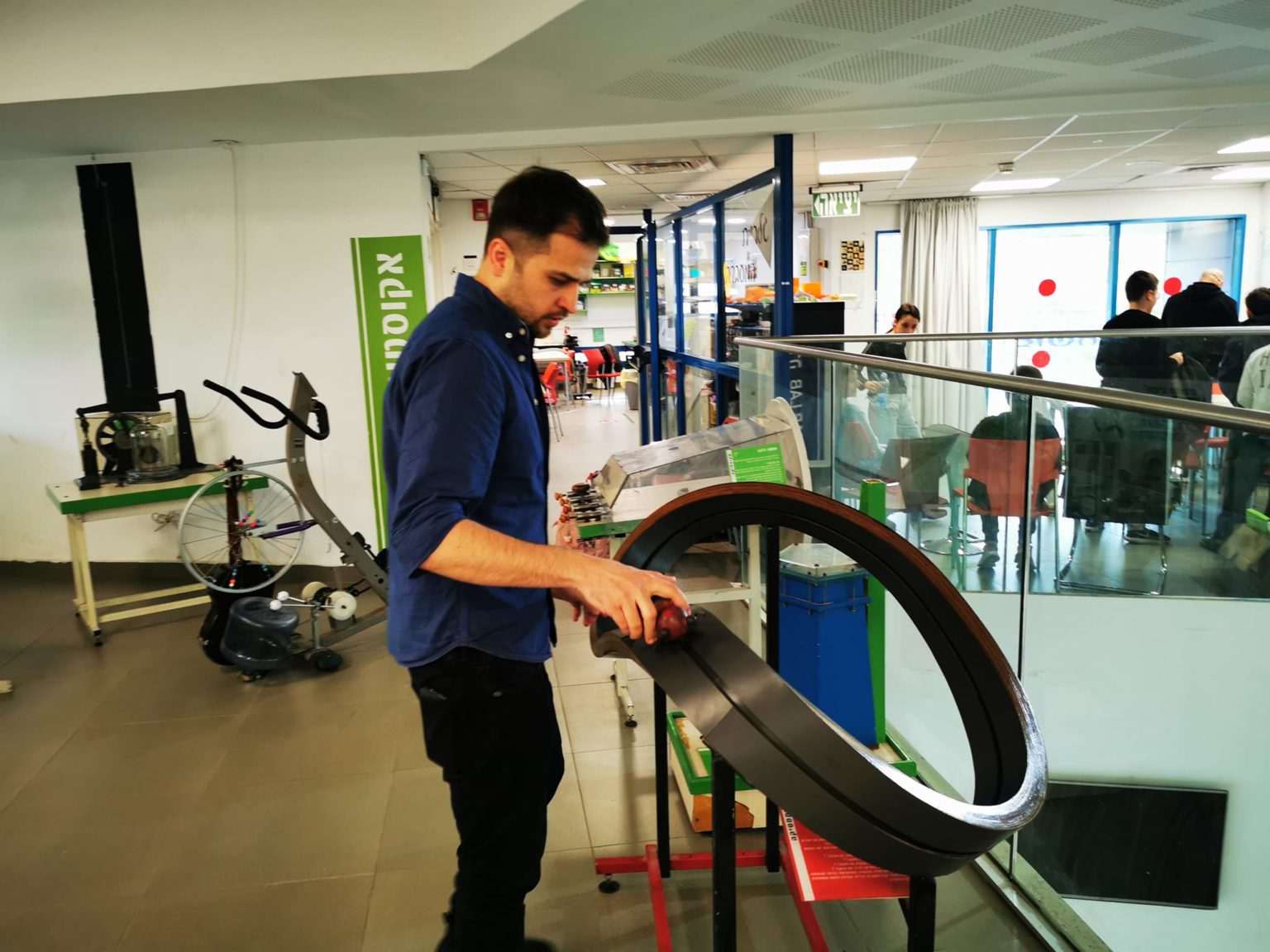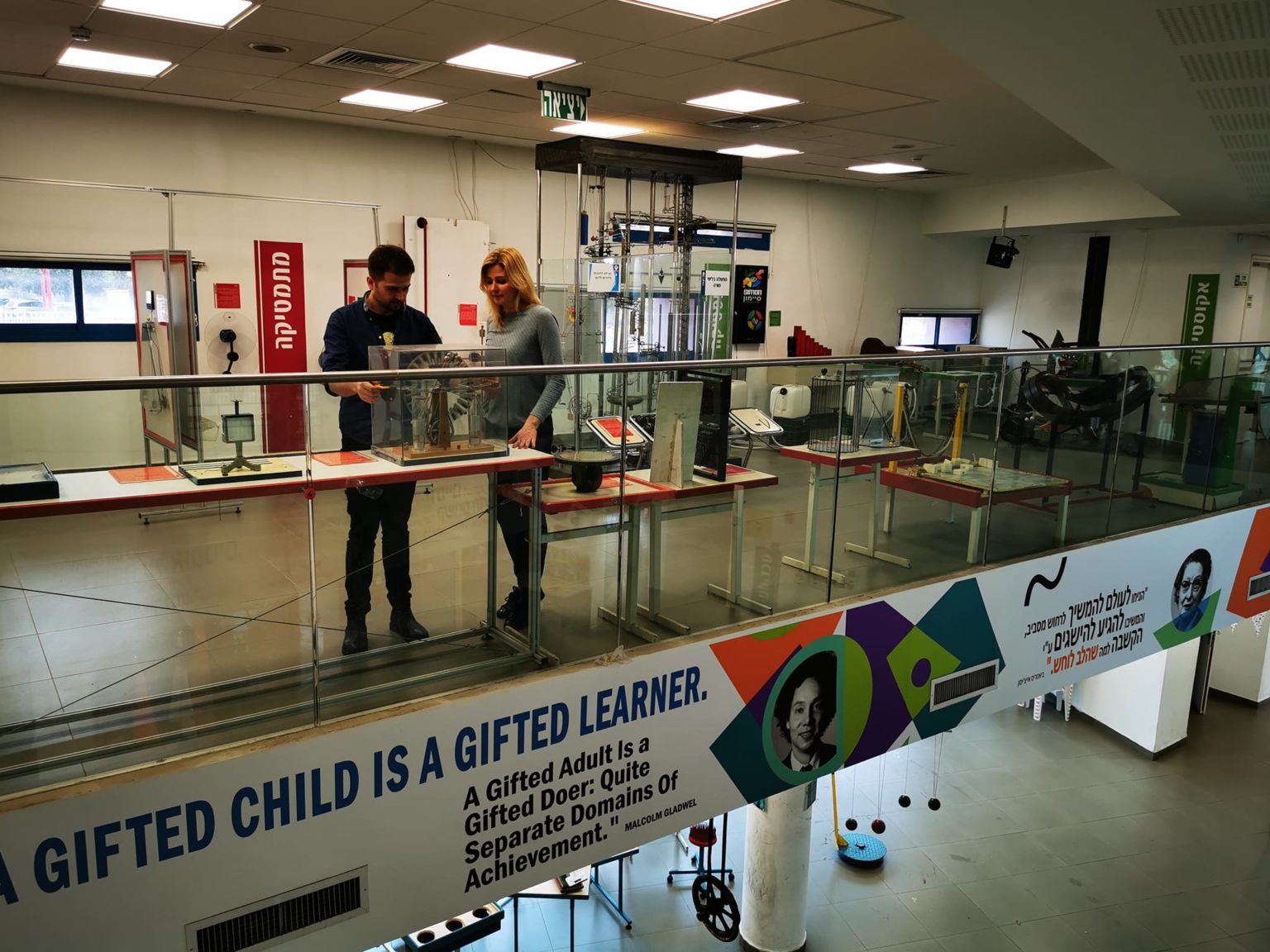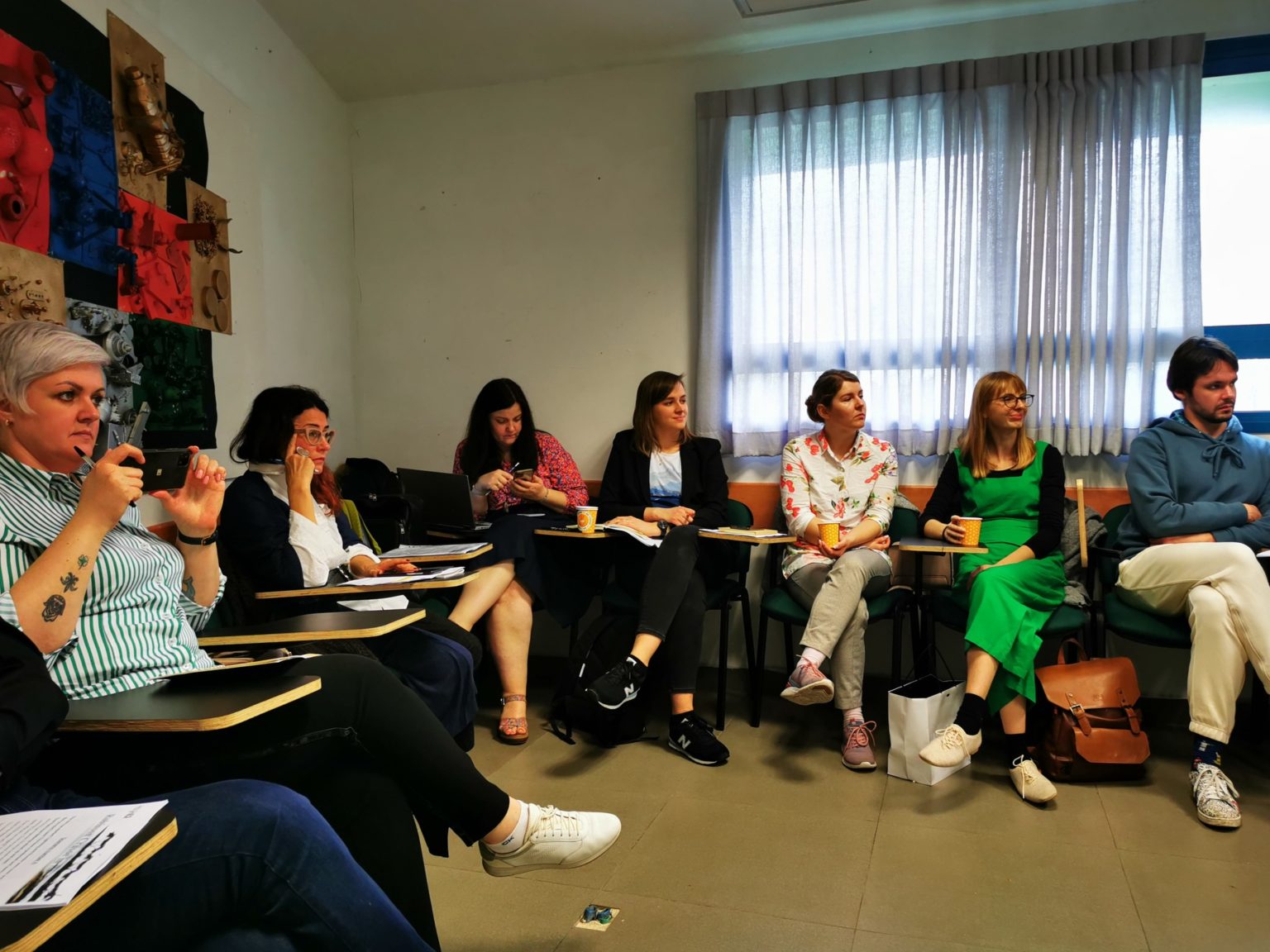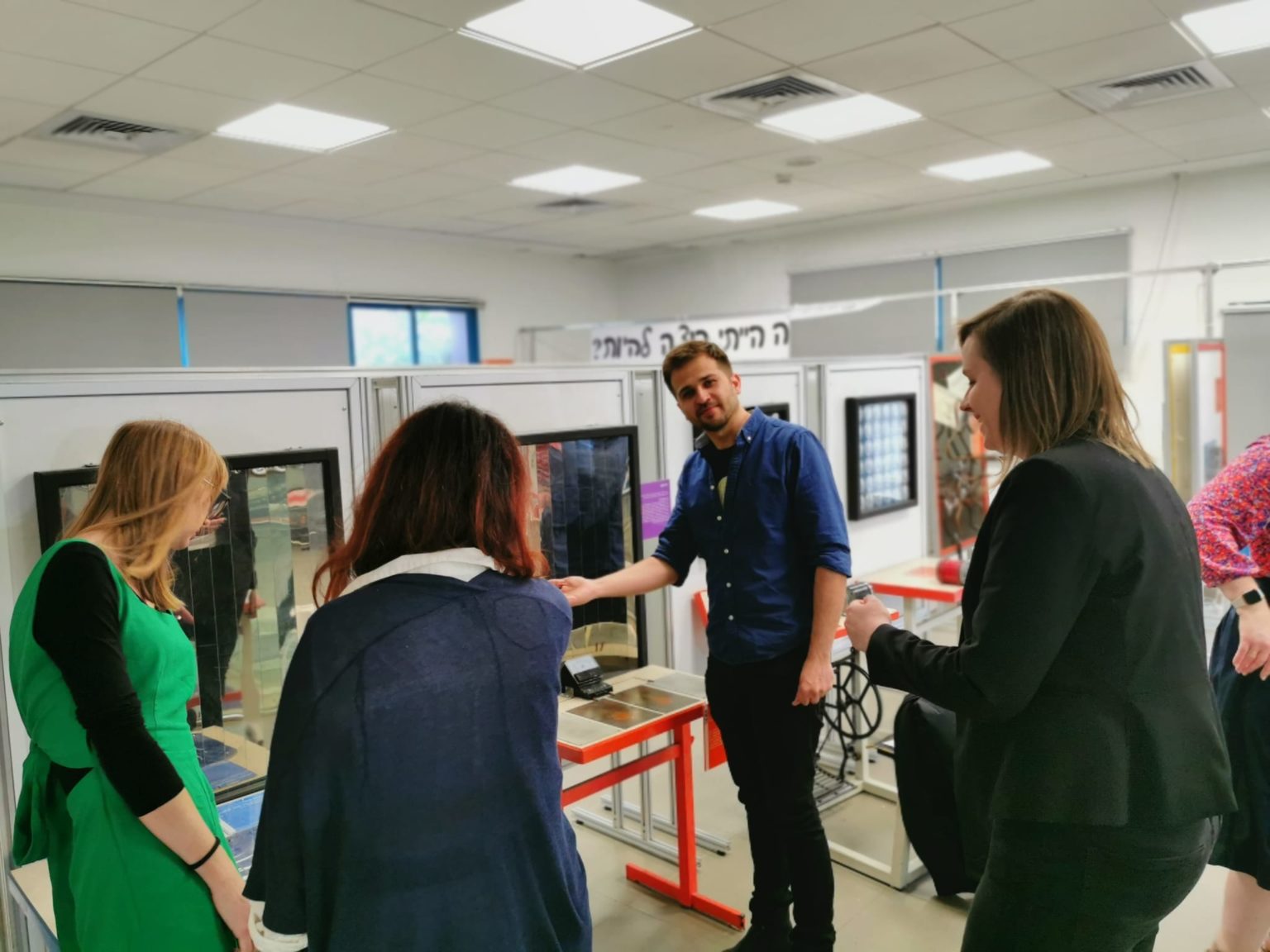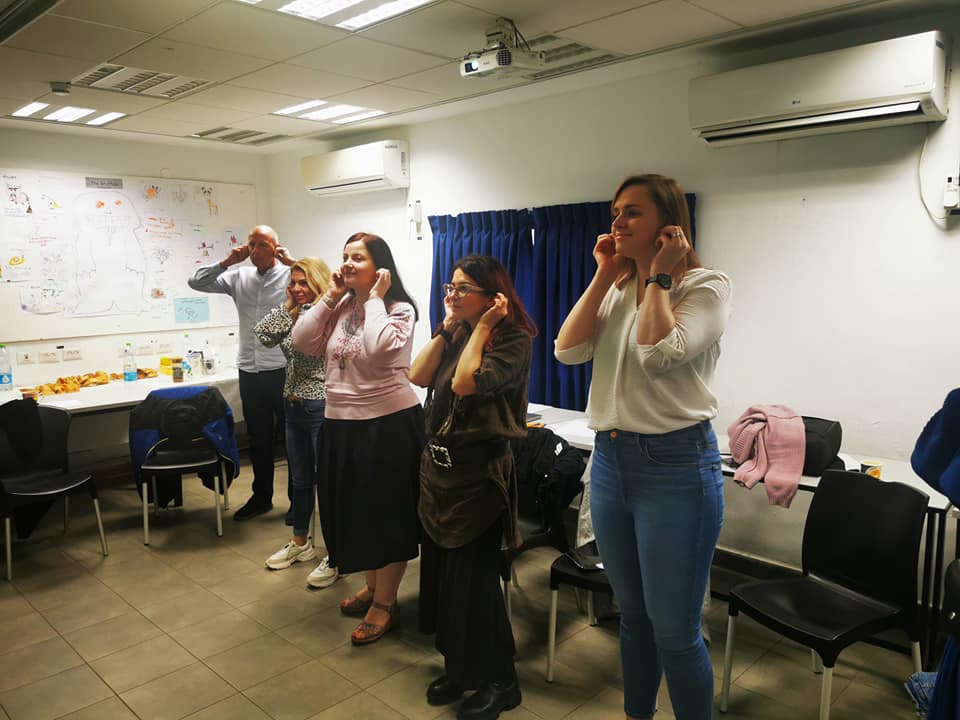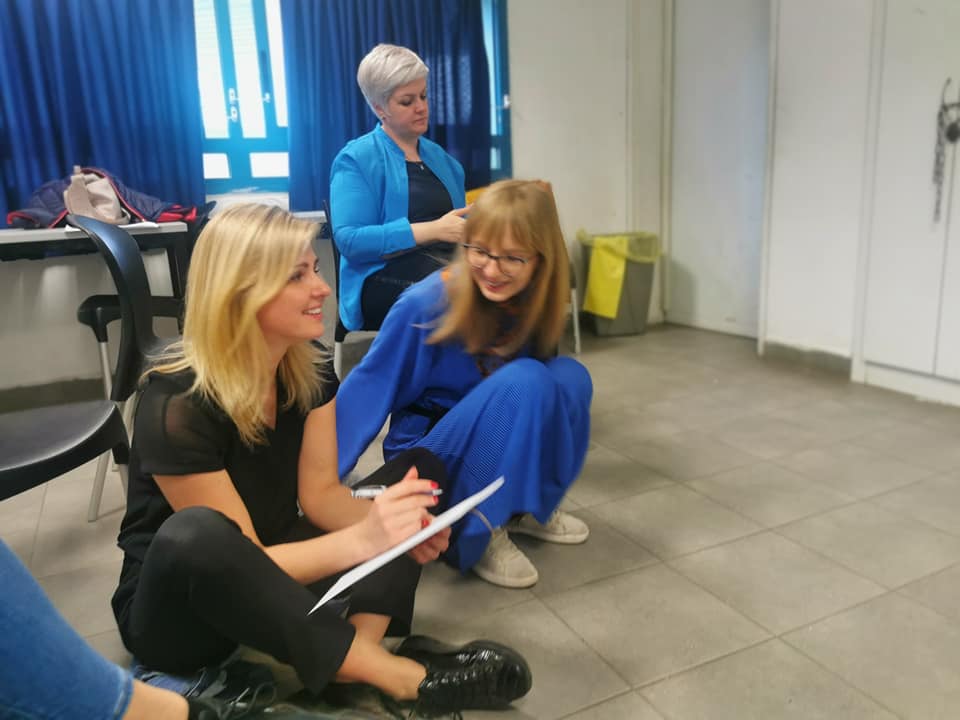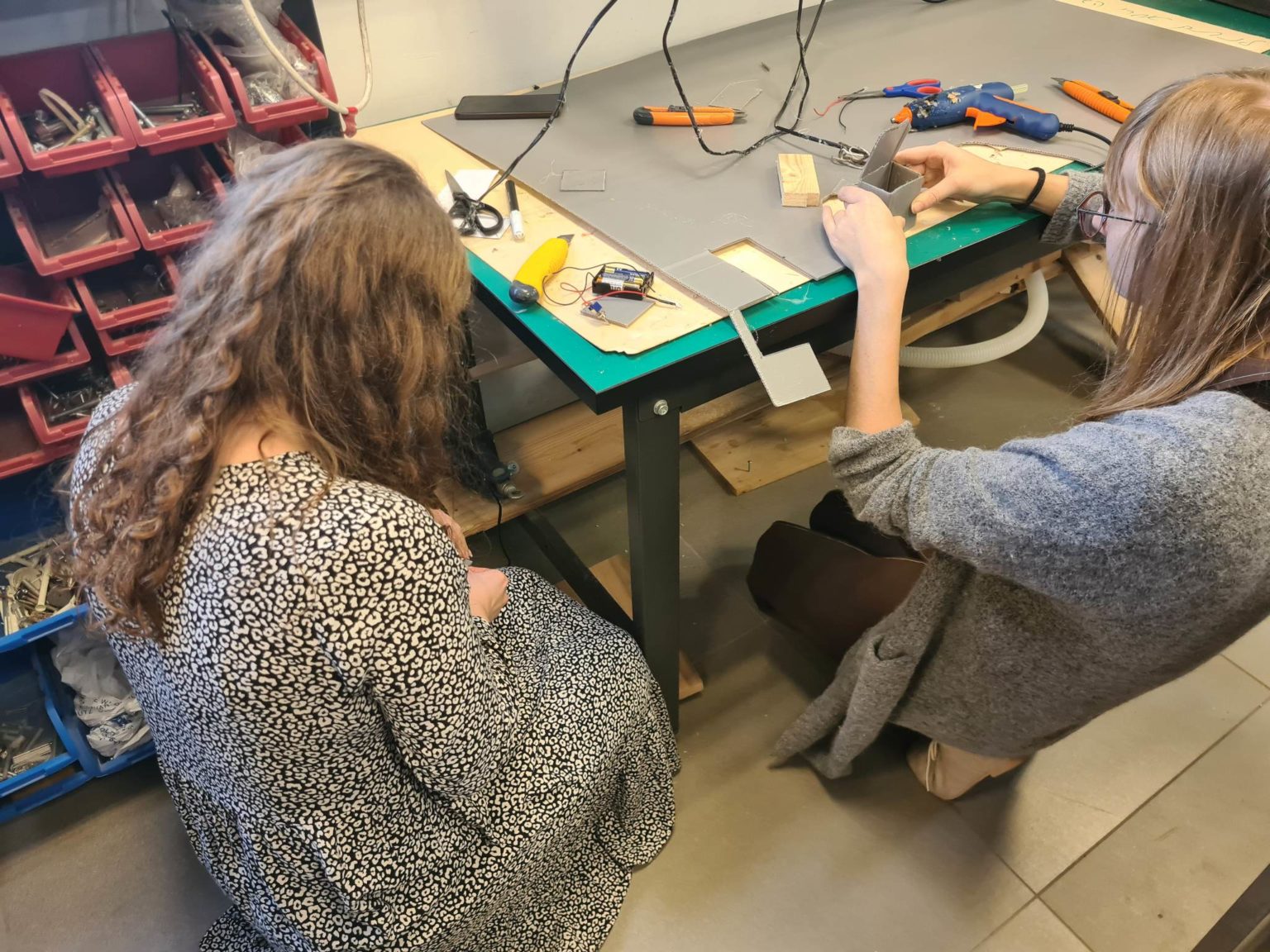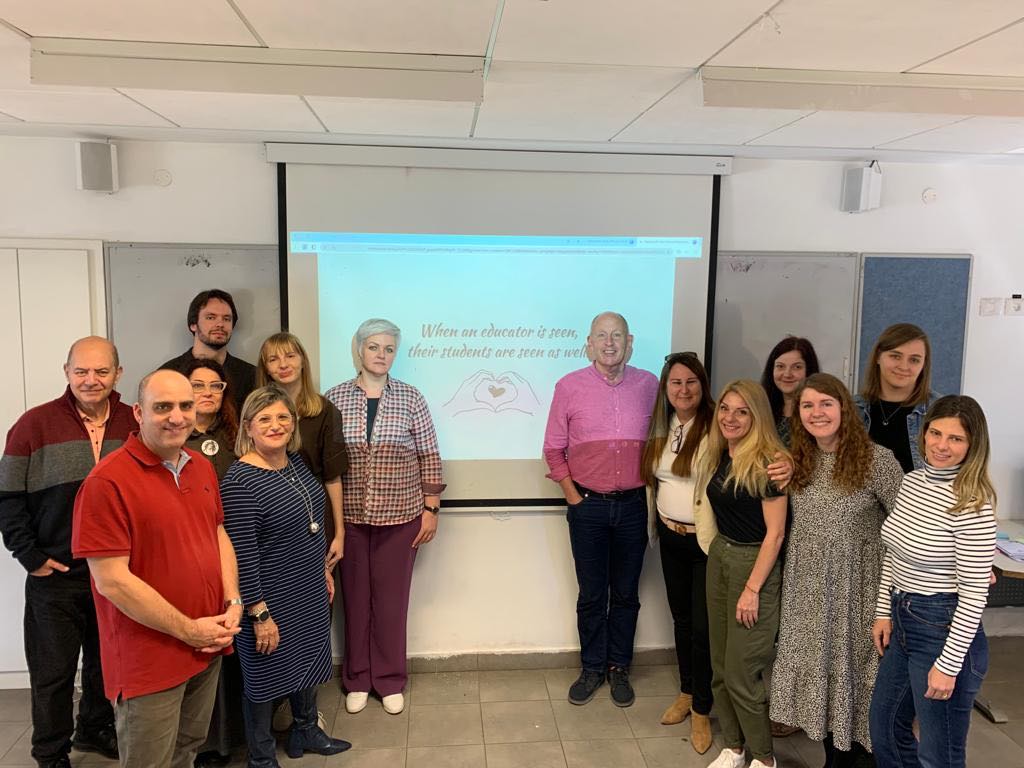1st LTTA
The main elements of training innovation was the provision of training for primary education teachers based on a holistic approach that will take into consideration both the cognitive and socio-emotional needs of gifted and talented pupils; the attention the training devotes to the specific needs of teachers and gifted and talented students in two separated environments, i.e. primary school and education centers for gifted students.
During the discussions participants talked about situations, how to properly treat gifted children and what we can expect from them.
Trainees got a lot of theoretical knowledge from 4 very experienced lecturers from Israel and and practical activities were implemented individually and in groups.
During the final day participants had to prepare the homework (lesson plan and prepare 1 lesson to provide to gifted kids and every participant simulated the lesson with trainings’ participants and got feedback and evaluation by trainers (Israel trainers team)).
After each day, at the end of the day, a reflection was carried out: during the reflection, the participants discussed what they had learned during the training.
Day 1:
Participants performed practical tasks that are given to gifted children in order to determine their level of giftedness based on the quality of their performance in a limited time.
Afterwards, there was a practical task: involving a psychologist and a client, the psychologist presents pictures showing shoes and headgear, after the client chooses one card with the desired shoes and another with a headgear, he has to explain why he chose it, and the psychologist has to ask open-ended questions aimed at finding out as much as possible about the client’s psychological and emotional state.
After the lunch break, the lecturer spoke and invited everyone to discuss about gifted children with atypical behavior. During the discussion, we talked about situations, how to properly treat gifted children and what we can expect from them. In conclusion, it was said that not all the problems have solutions.
At the end of the first day of the training, a reflection was carried out: during the reflection, the participants discussed what they had learned during the training.
Day 2:
In the meeting of the second day, the lecturer presented information about the foundation of the adequate teacher for gifted children and what are the main characteristics of the teacher background and education, models identifying the effective teacher.
Later, the lecturer gave up his workplace to the project participants: each participant had to present one of the lecturer’s slides and explain in their own words how they understand the statement. After lunch break, all the participants discussed what the professional and didactic abilities of the teacher should be. Towards the end of the meeting, the participants of the project were introduced to what should be the understanding and application of gifted classroom.
And finally, at the end of the training day, there was a reflection: during the reflection, the participants discussed what they learned during the second training day.
Day 3:
The meeting of the third day began with getting to know the new lecturers of the training project. Lecturer Dr. Ofer Keren during the first lecture introduced teaching methods and strategies for teachers of gifted students. He mentioned that it is very essential to choose correct strategies because it contributes significantly to building the environment. Dr. Ofer Keren presented the conclusion: all along, we must remember that there is no gifted teaching without adjusting the curriculum. Later, the lecture was extended by two new lecturers: Shiri Lev-Ari & Tali Lacks-Zur. They demonstrated one of the methods in a practical way, which is called the jigsaw method. Chocolate and certain cards with words were distributed to all project participants.
Participants had to come up with questions about chocolate, but in the question they had to mention the word they got with the card. After writing all the questions, they were divided into several different topics. Later, the lecturers divided the participants into as many groups as there were different topics. There had to be as many people in the group as there were groups. Each group searched for information on their assigned topic.
And later, the group members had to pass the information to the other group members while going to other groups. The rest of the time was spent on lesson planning and reflection of the day.
Day 4:
The fourth day of training was devoted to feedback presentations of project participants. It was planned that each teacher using the knowledge gained in the previous days, had to prepare a lesson plan for gifted classroom or classroom where gifted pupils learn. Each participant got the feedback, suggestions from lecturers, as well as all Teacher’s questions were answered. At the end of the day, a reflection was carried out, during which it was discussed how well the participants prepared, using the knowledge gained in the previous days.
Day 5:
Friday’s meeting started with lecturer familiarization with the holistic-cognitive approach to teaching gifted children and the social emotional approach to teaching gifted children. During the short break, the project participants got acquainted with the premises of the gifted center. Later, all project participants discussed what the structure of a curriculum adequate for gifted children should look like. And at the end of the training, a reflection was held, during which the project participants shared their impressions from the whole week.

2nd LTTA
GATE Erasmus+ project training’s the 2nd round had started on the 12th of March, 2023 in Rishon LeZion, Israel. Teams from Lithuania, Latvia, Bulgaria were trained by Israeli team and spent very productive training week.
Partners visited Rishon LeZion Municipality and had meeting with mayor, vice-mayor and personnel responsible for education, after partners continued visit to Igal Alon high school where challenges and opportunities teaching gifted pupils were discussed. It was great to hear insights from teachers who educate gifted pupils and as well to have conversation with children.
Main focus in this training was to teach trainers and teachers who already have experience in gifted education or who attended C1 training.
Partnership had a lot of theoretical and practical lessons, visits to schools, gifted centre, discussions on gifted education, as well were involved into job-shadowing activities in pairs in gifted centre. After each day of training partners had reflections of the day. At the end of training evaluation was performed and results discussed with all together.
Participants knowledge gained during the training in Israel was shared also with teachers in partners countries during workshops involving associated partners-schools teachers).
Some thoughts and ideas learned about gifted kids education:
“Teachers are important not for knowledge, but they need us to see and understand how learning process could be involving and interesting” – the role to encourage them, to motive to seek for deeper knowledge, to teach to find information (to formulate questions correctly to get it).
“When person works/studies in a team he/she has to have responsibility to every member, including him/herself”
“Gifted pupils are recognized as gifted not because of their excelent academic results, but of their willingness to learn, to seek for knowledge, answers, and what is more: unique approach to learning”.
Partners who attended as trainees training in Israel (eMundus, VDU, ISMA, ZinevArt) organized workshops in their countries and shared the knowledge, experience and tools with teachers, who are involved in the project from associated partners institutions. Results, agendas, and descriptions are provided here: Workshops
Day 2:
Creativity development and social emotional learning topics where touched, discussed and experienced today during GATE Erasmus+ project training. We’d started the day with excursion in Ron Vardi centre and Schwartz-Reisman centre full of encouraging ideas, STEAM focus points, labs and conference hall where we had a chance to take a look at physics lesson. After brunch we had teachers’ panel on the image of gifted pupil at the Q2 (i.e. 2025-2050) of the 21st century and at the same time framing the Q2 teacher who teaches advanced and talented.
What will you ask in job interview?
Is it good or not to break the frames?
What are the skills of G.T. needed?
Could you trust “X-ray” or should you give a task to do and see the result?
Why the level of personal engagement matters a lot?
Does the change pain?
What triggers gifted child?
What is the safe environment for you?
And much more questions were discussed. After lunch we had creativity session. It was great! Each game is a communication between people which teaches us a lot. Training day ended with analysis of SEL and its importance for gifted child, parents, teachers. After all sessions we had a great reflections.
Day 3:
The 3rd day of training was active and involving practically in movements.
The morning had started with review and analysis of stereotypes of giftedness. For this we reviewed mash up of various selected movies, for example, “Mona Lisa Smile”, “Gifted”, “Good Will Hunting”, “Billy Elliot”, “Quantum Physics”, etc.
Then we continued with improvisation in movements exercises which were related to wellbeing in teaching science and what is more… to the science itself. It was really amazing!
In between the sessions we had a great chance to visit ongoing lessons where we talked to gifted pupils.
Afternoon session was about evaluating the gifted pupil’s functional, behavioral and emotional status, analysis of ourselves.
Day 4:
Day 5:
GATE training week ended, the time went very productive and we enjoyed it and we were fully involved into motivating activities and improved our knowledge. The 5th day was focused on topics such as:
“Thinking Hats” around tech challenges of teaching gifted pupils, lecture was provided by Yaara Benitzhak.
“Pisg’a” centrer as a hub for nurturing educational excellence and its essence was explained by Iris Isenberg.
teaching “makers” and art in gifted surrounding by Adi Ritter.
After lunch participants had Teachers’ panel – evolving from the classic teacher to the gifted one. Session was guided by Ron Vardi teachers and guest teachers Michal Mor, the Gifted Wing at the Ministry of Education. Experience we gained will stay in our brain, mind, body and will be shared with others in purpose to grow up wider community of teachers who will be capable to grow up wider community of educated gifted pupils.
Project team highly appreciates lecturers of Ron Vardi and guest Teachers gave us, experience you shared and training week you organized.
Team’s professionalism and ability to motivate teachers will result a significant increase in teachers productivity and educational area working with gifted children.
We wish an inspiration and motivation for the future activities!
